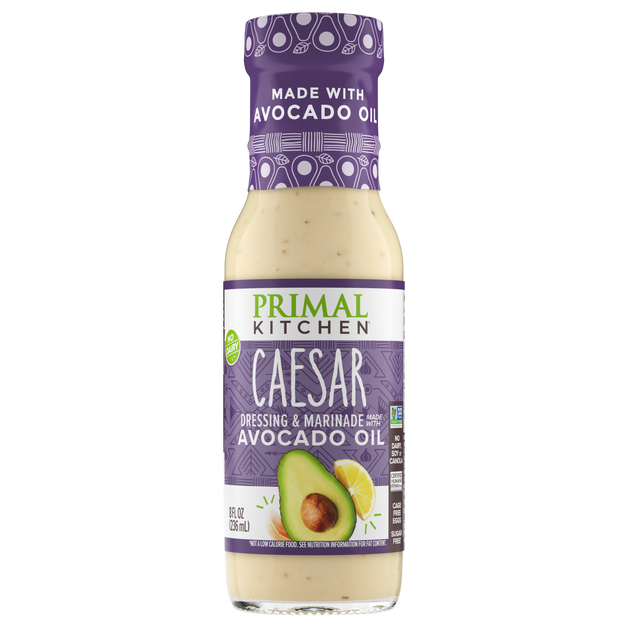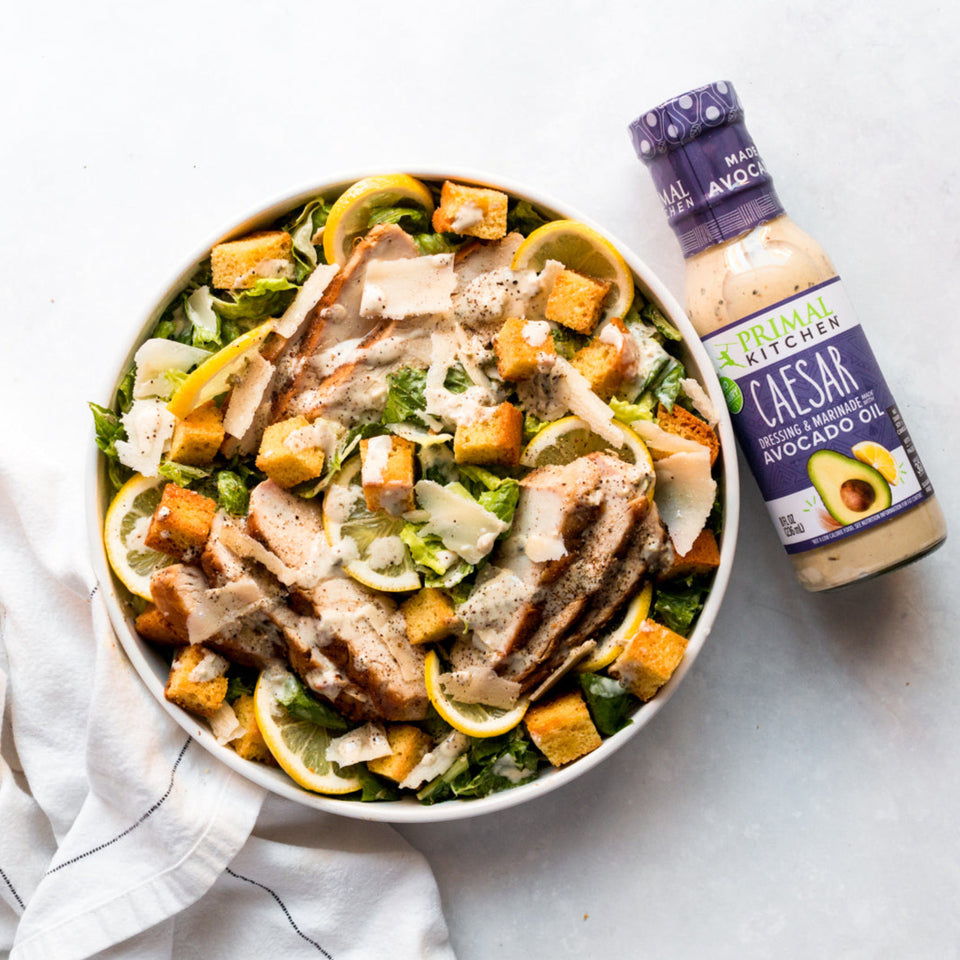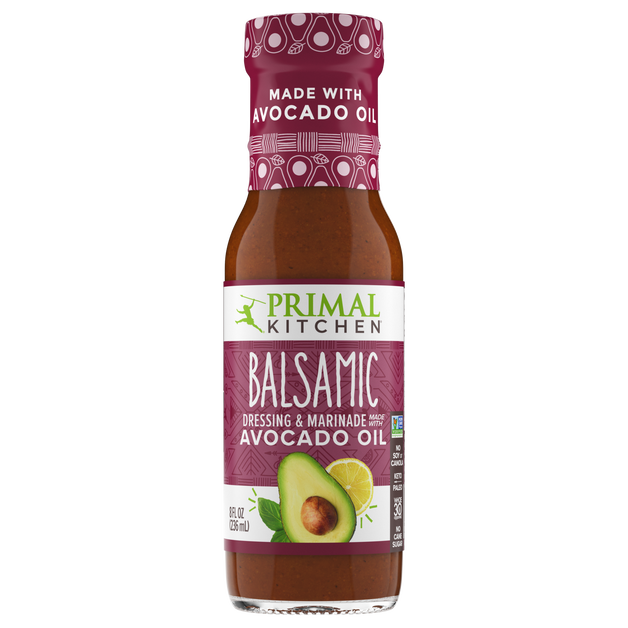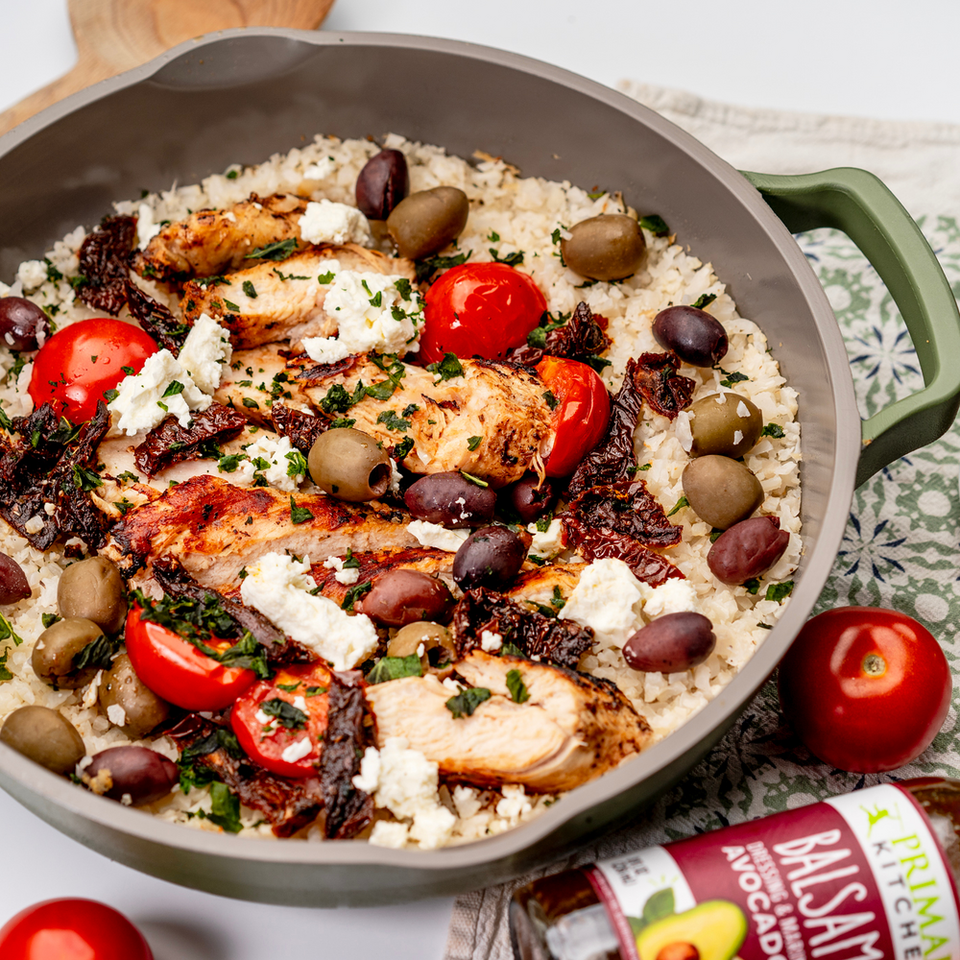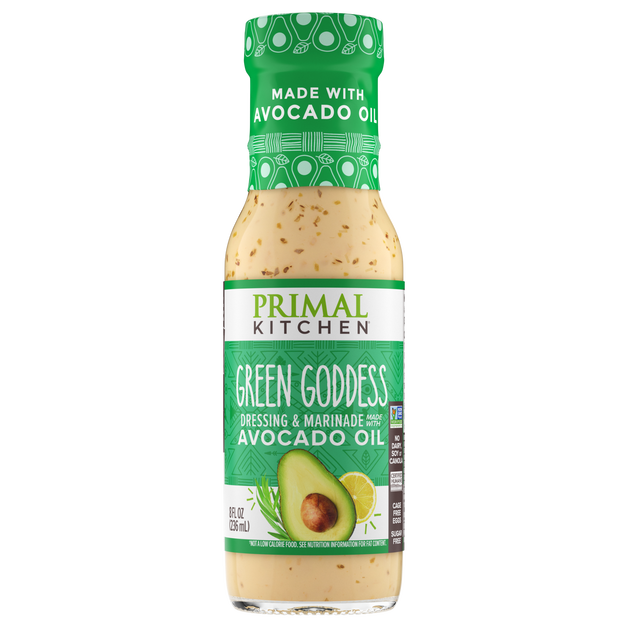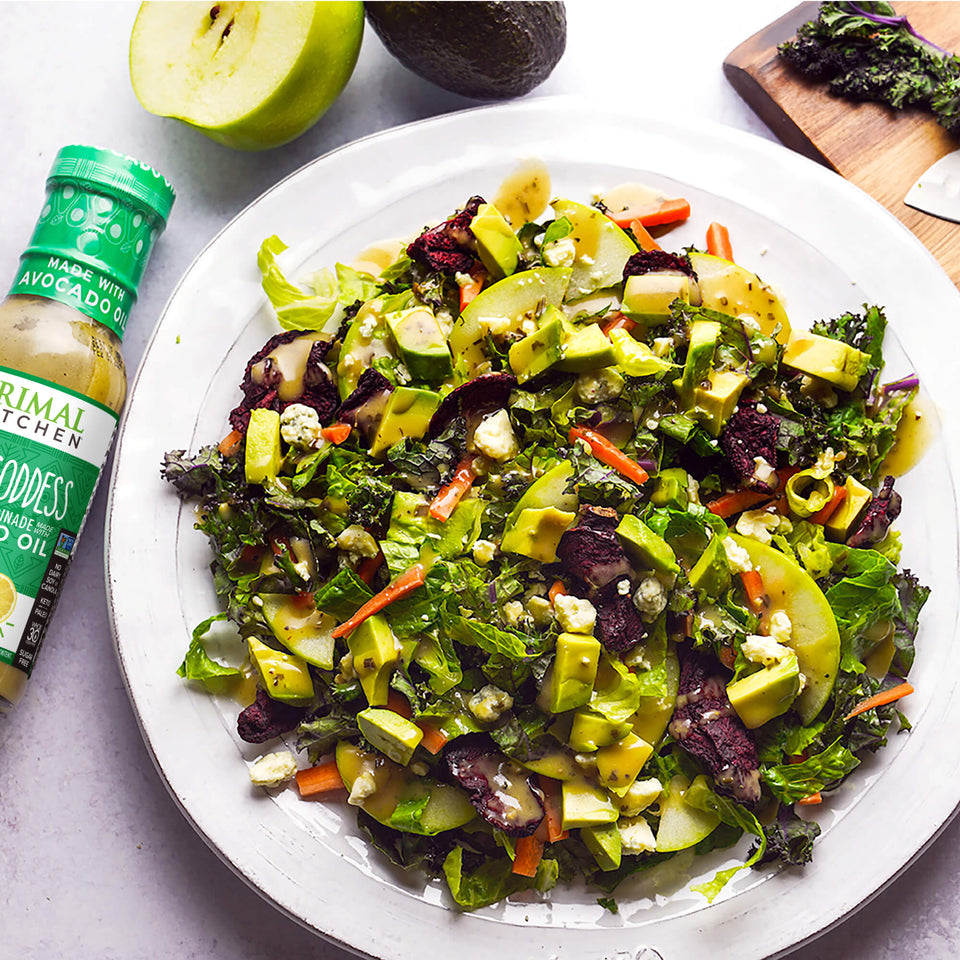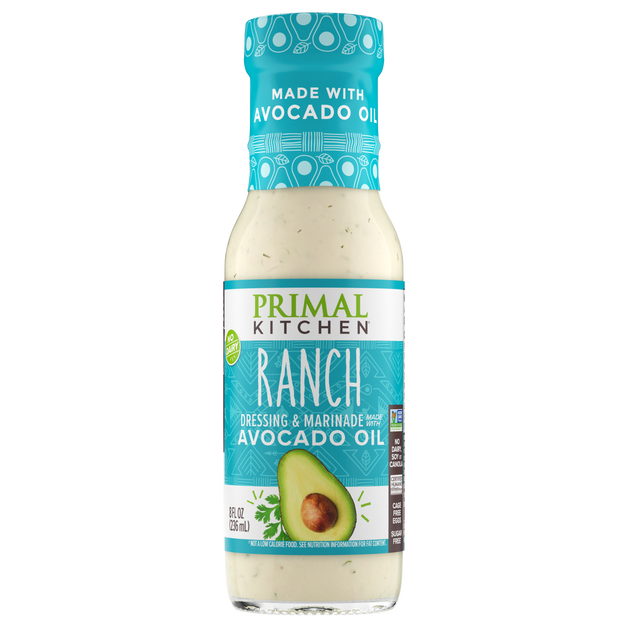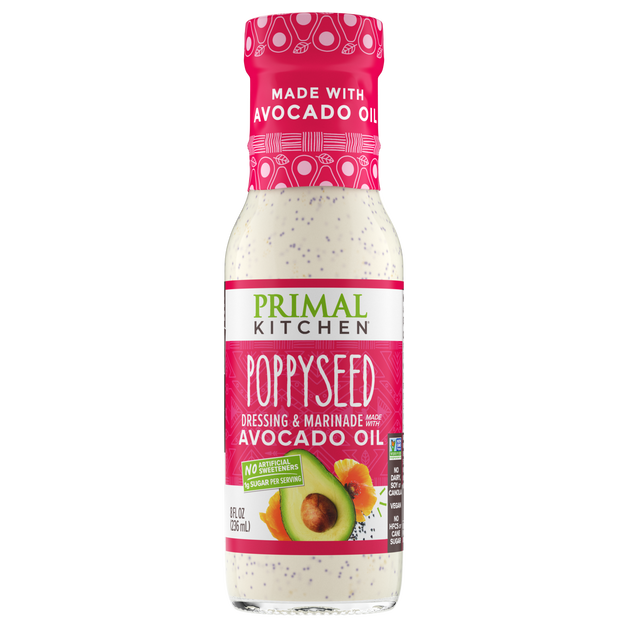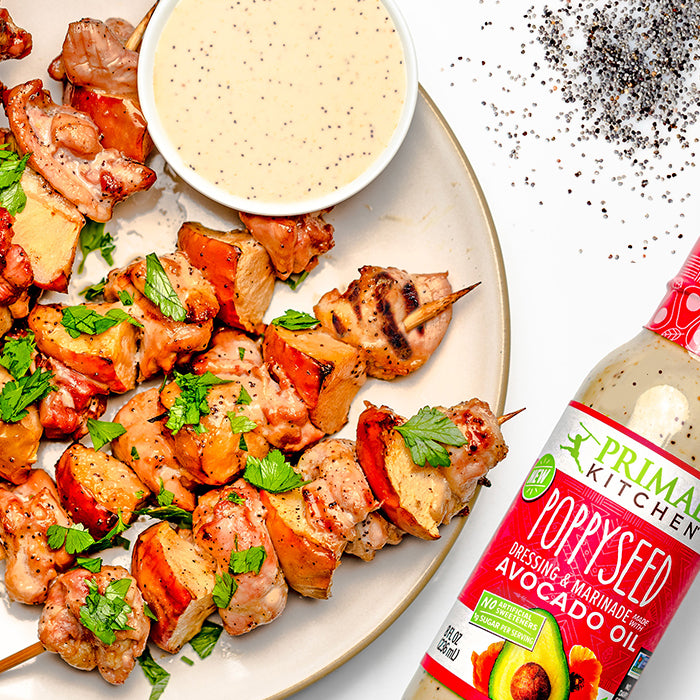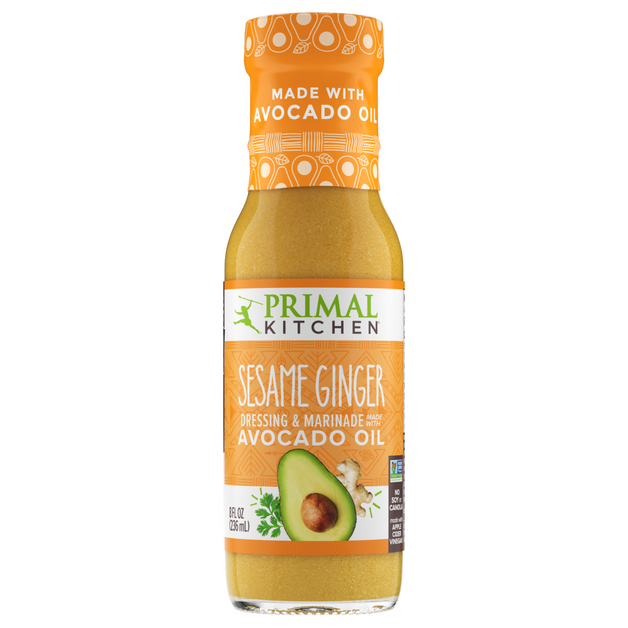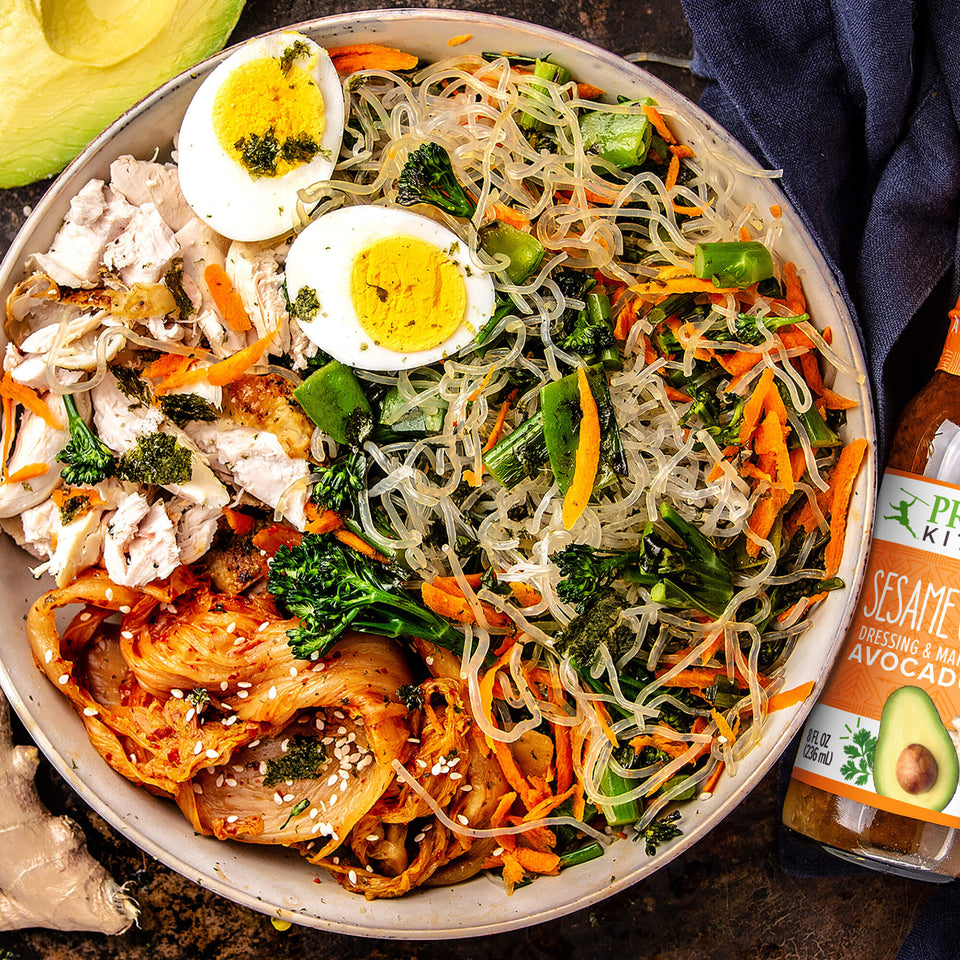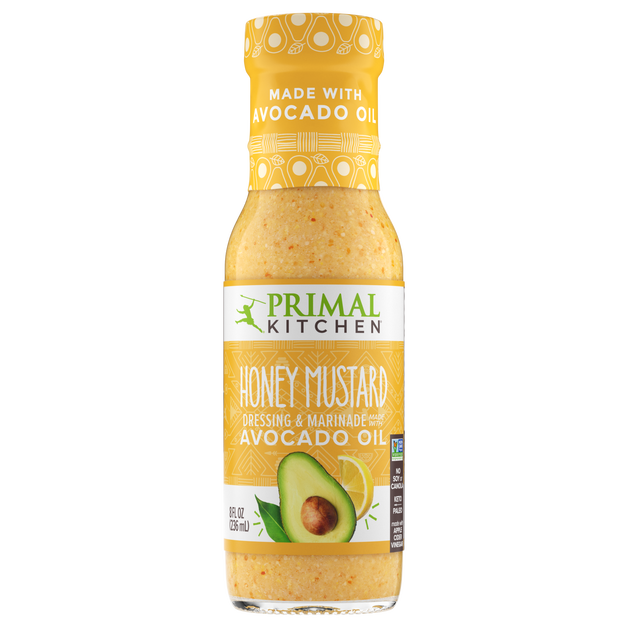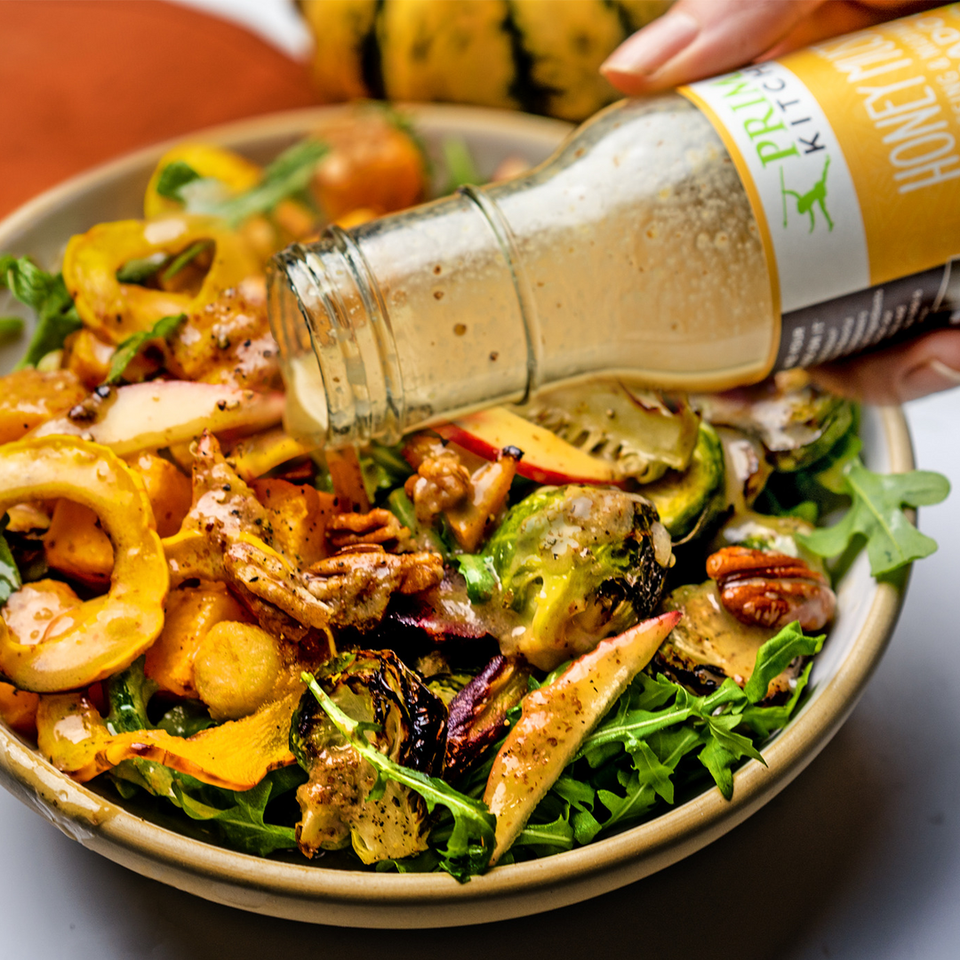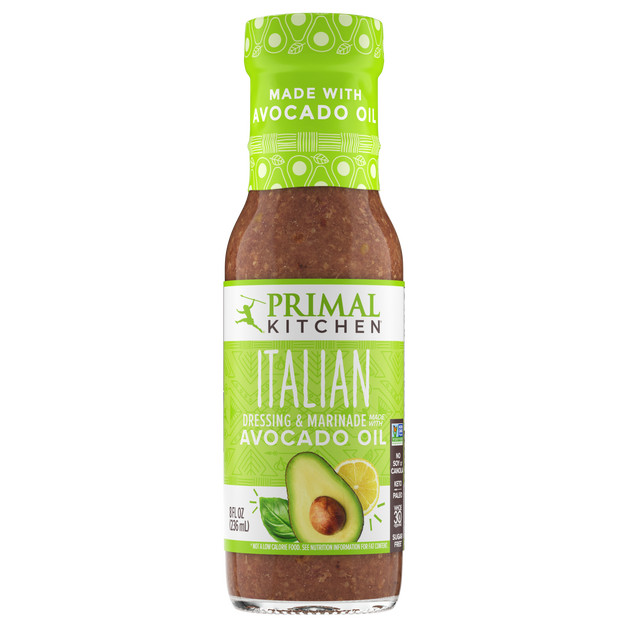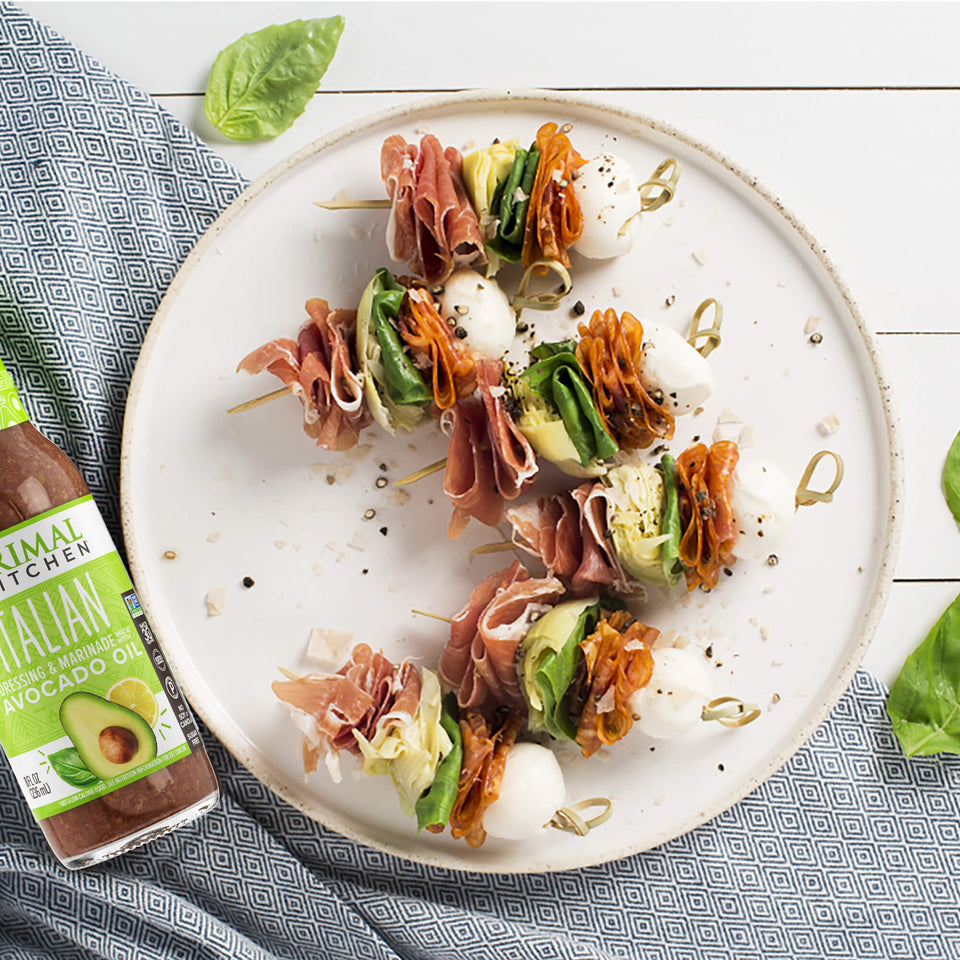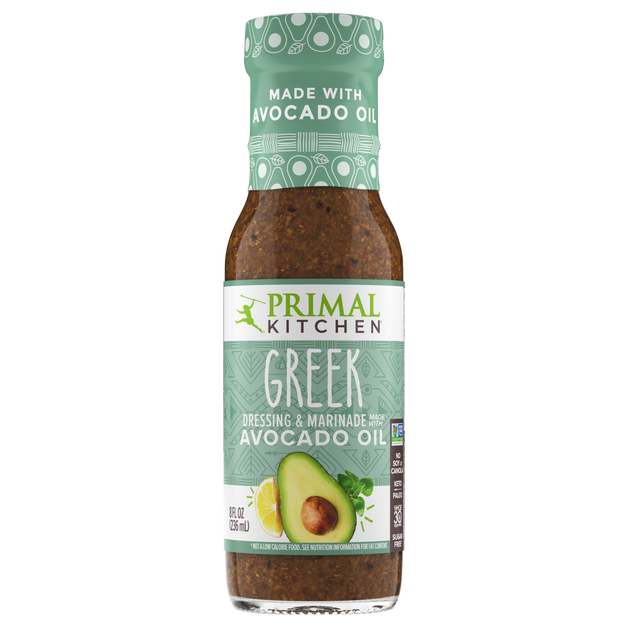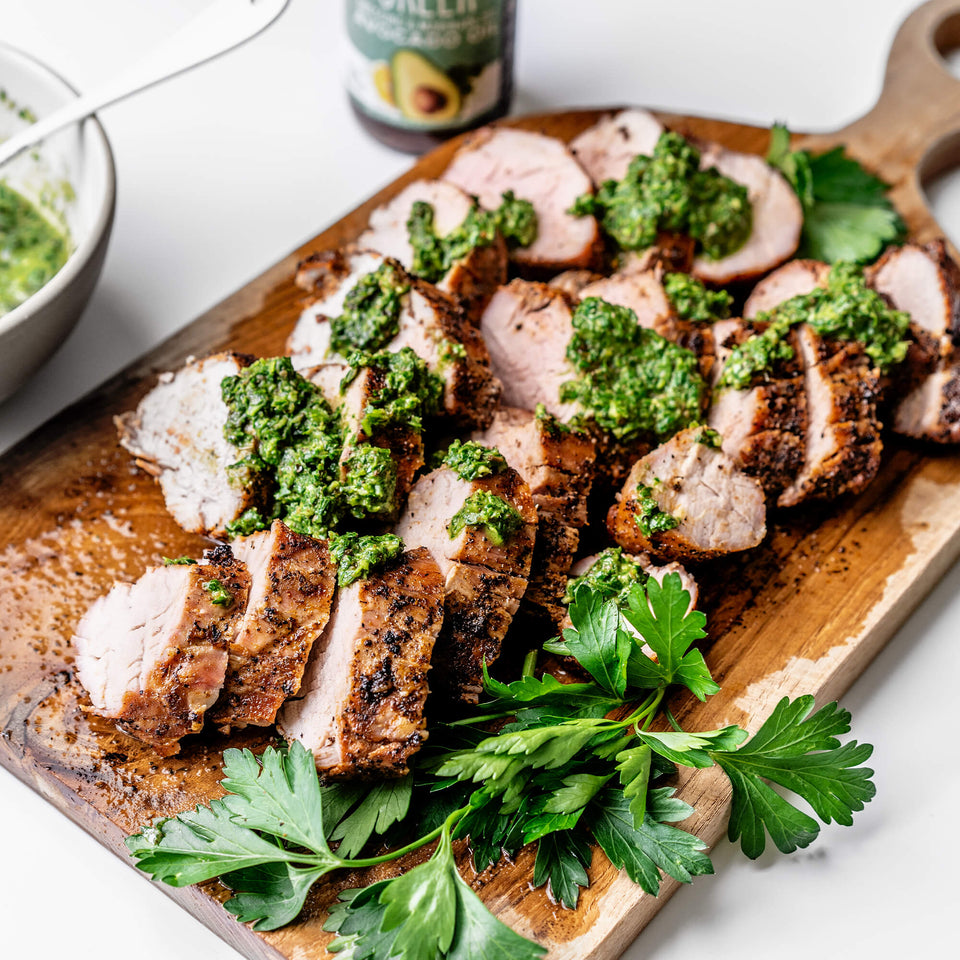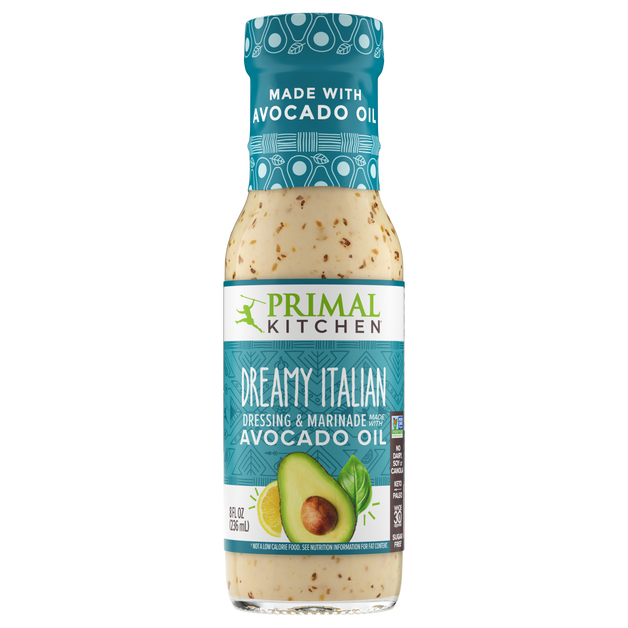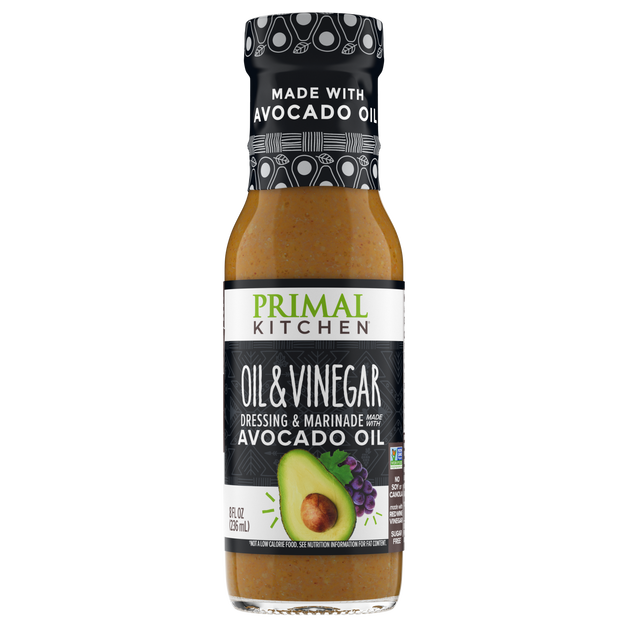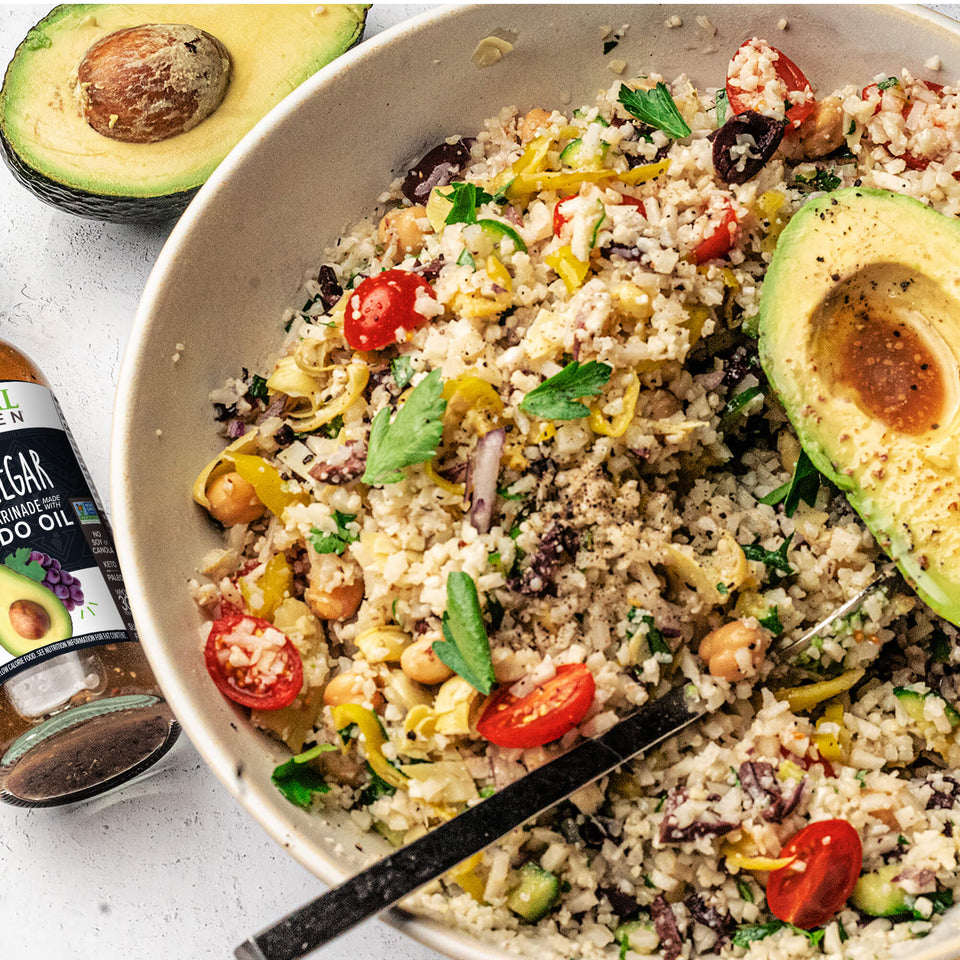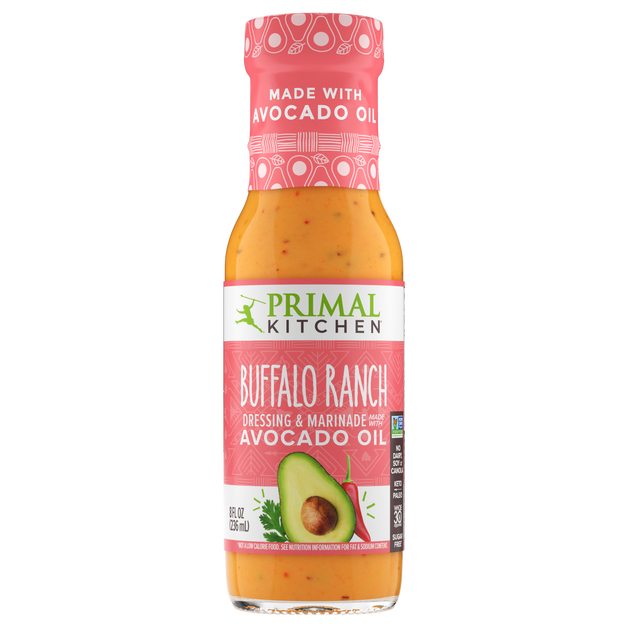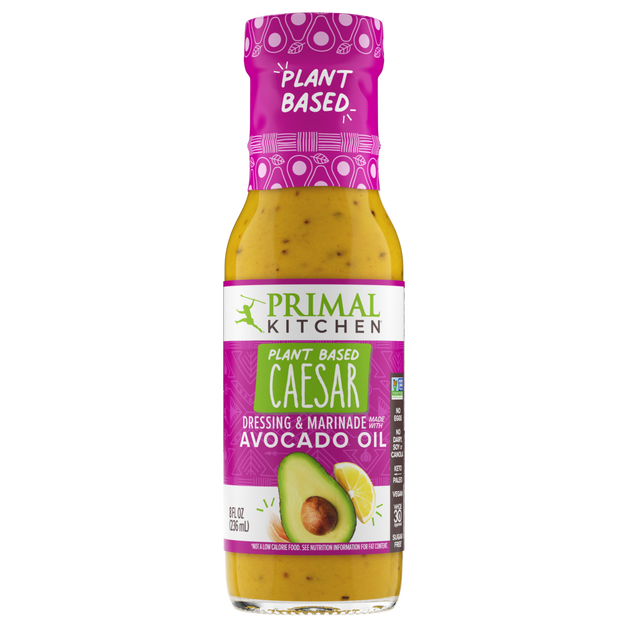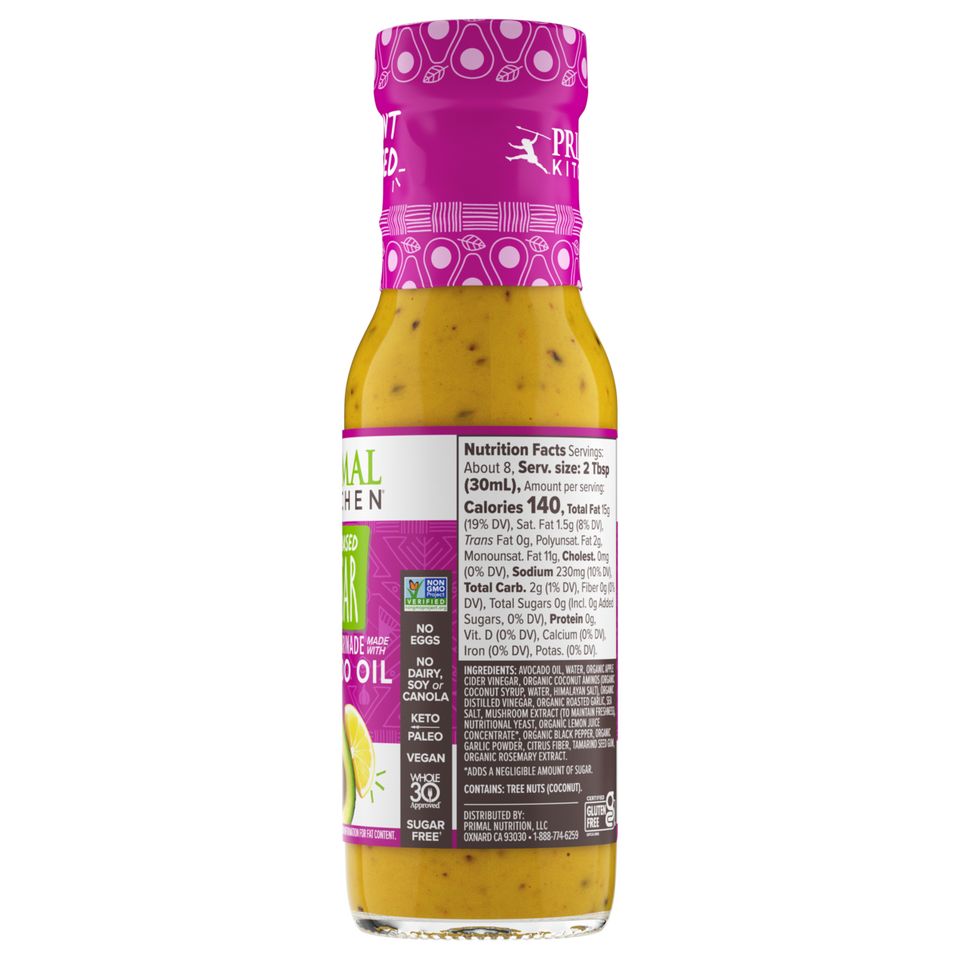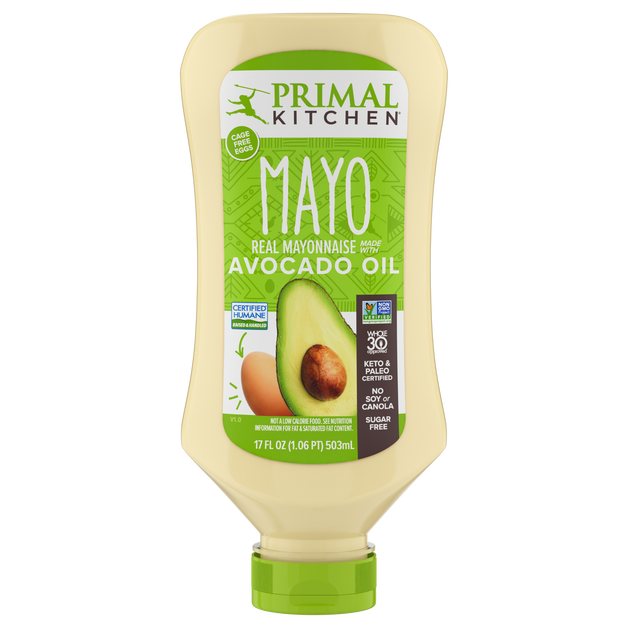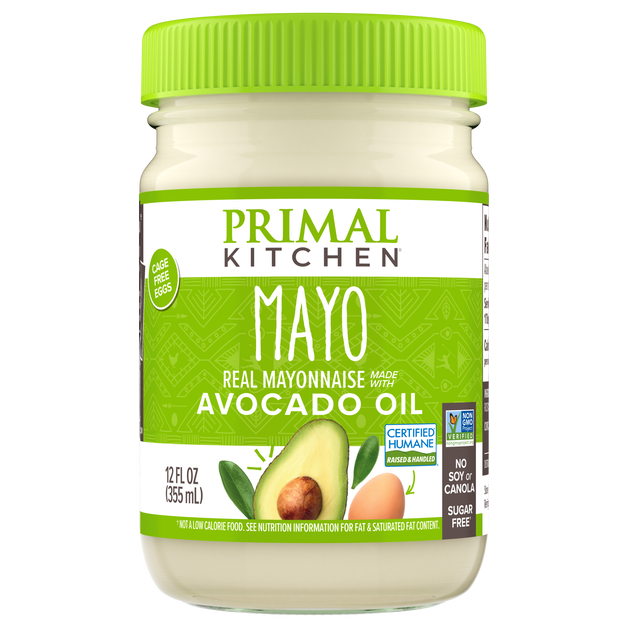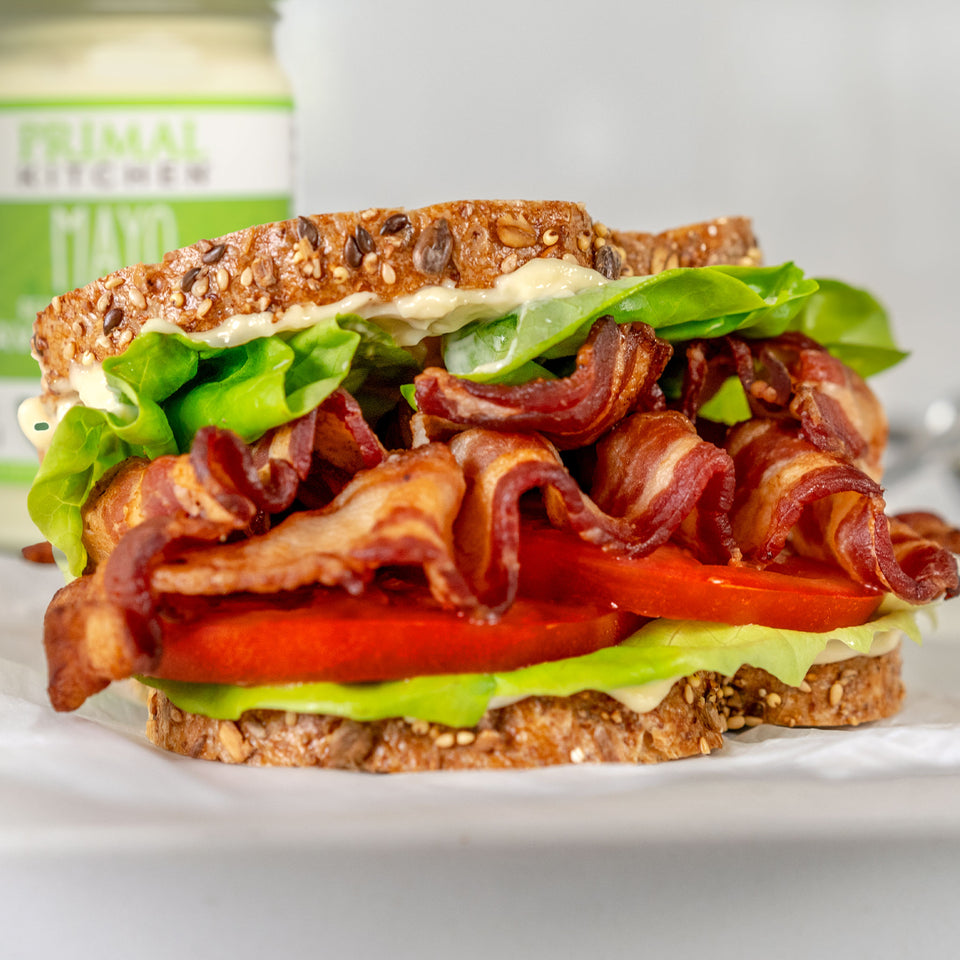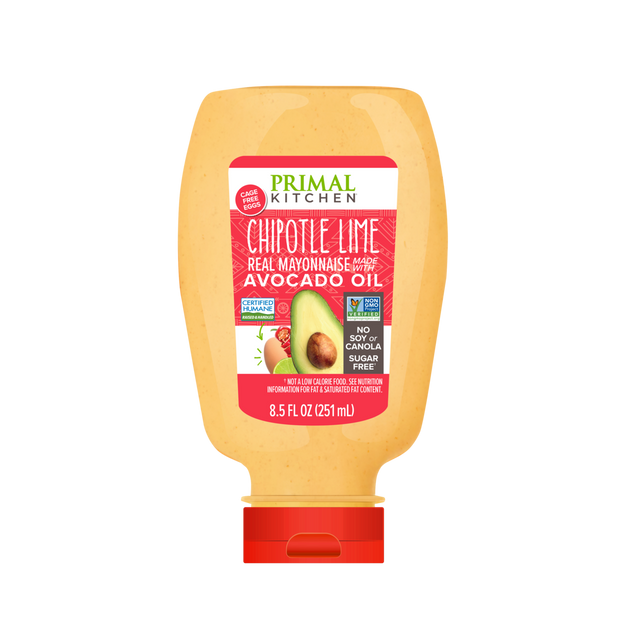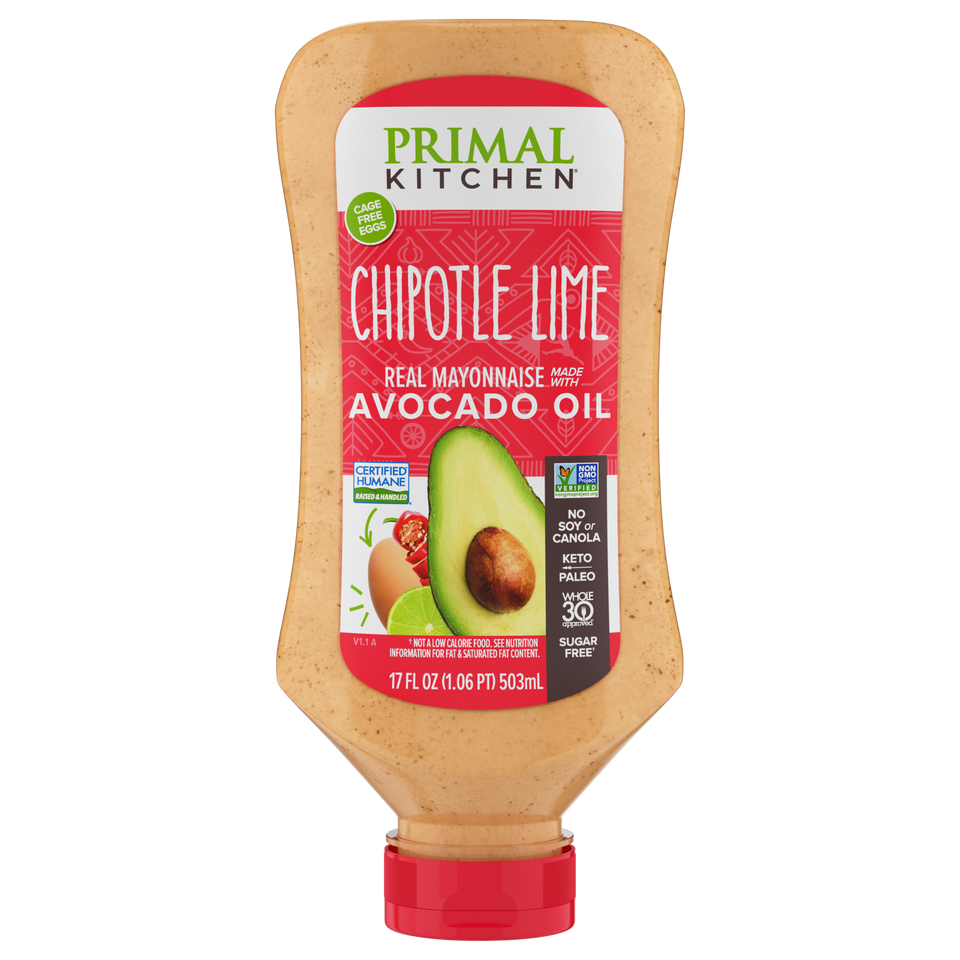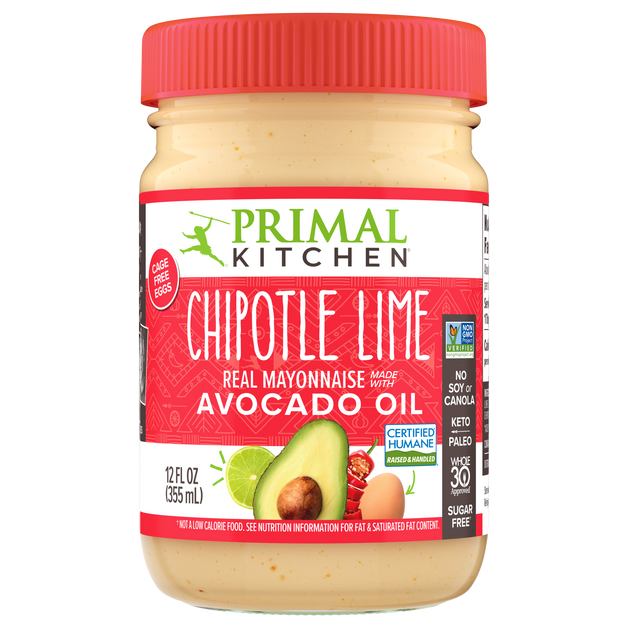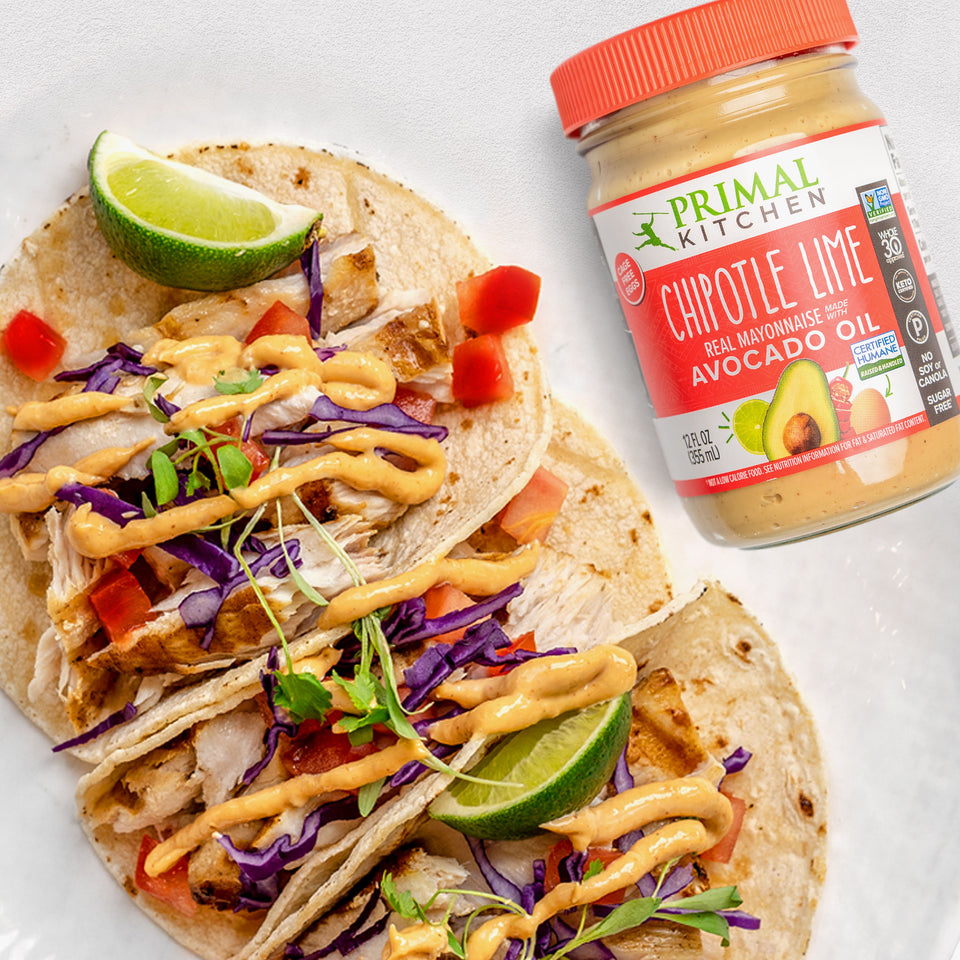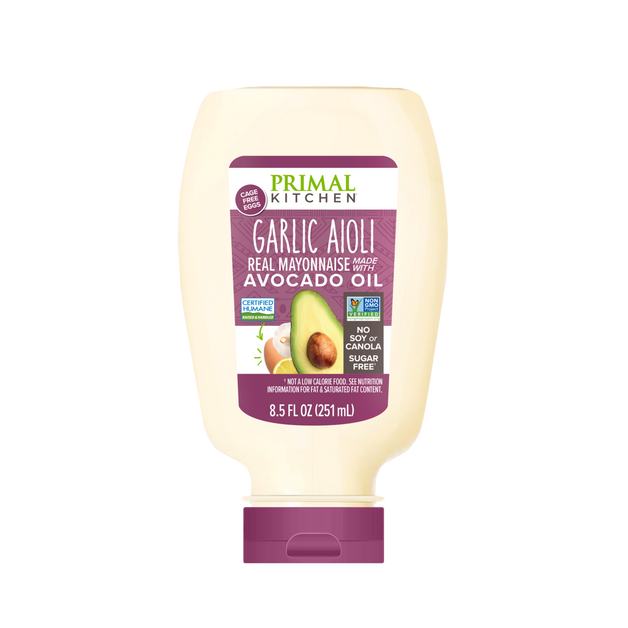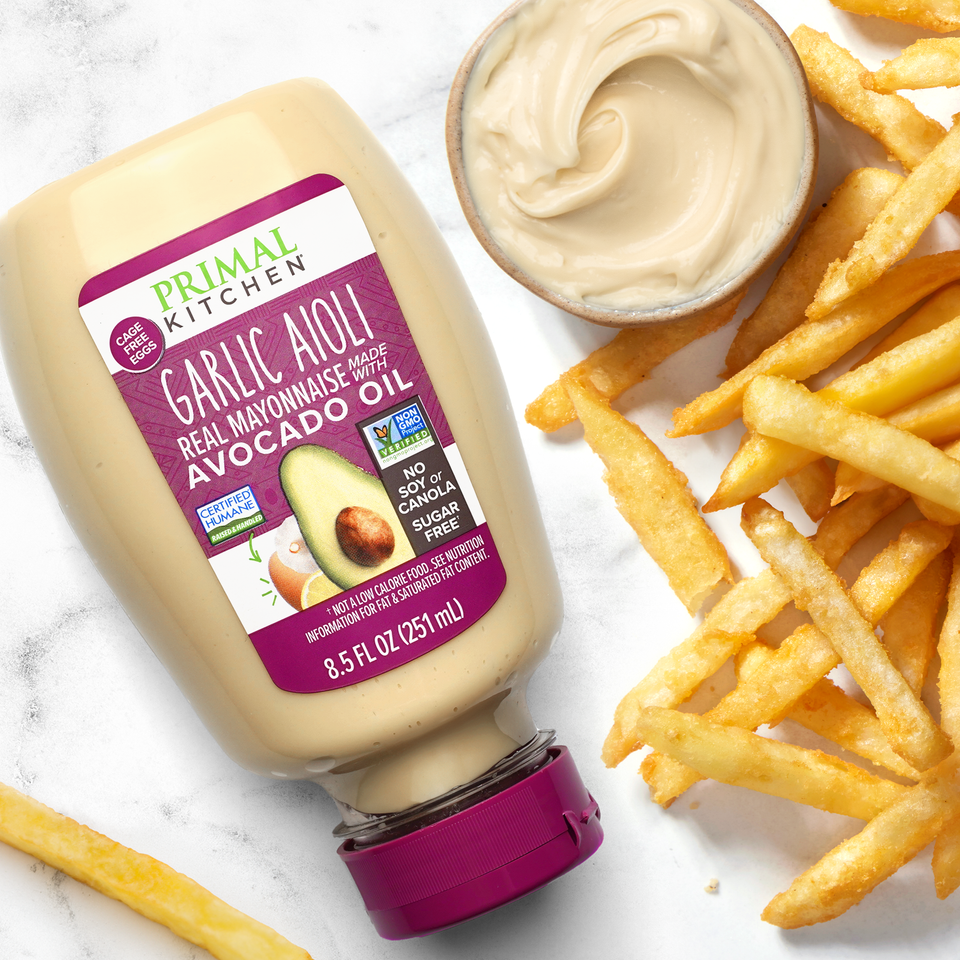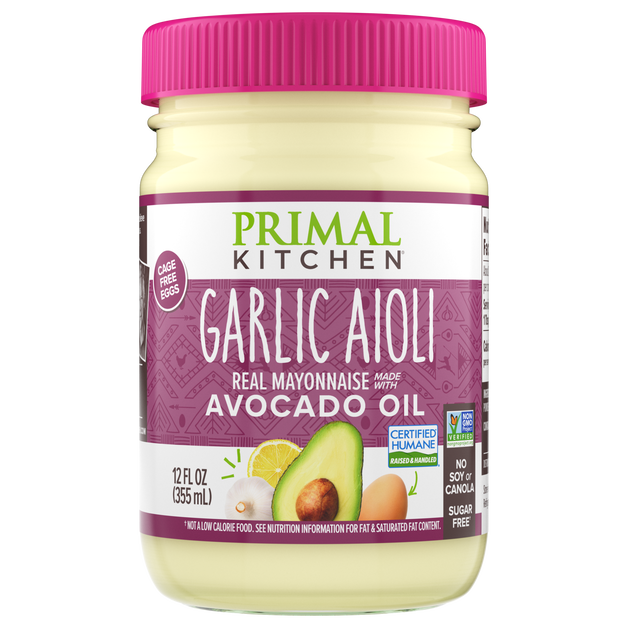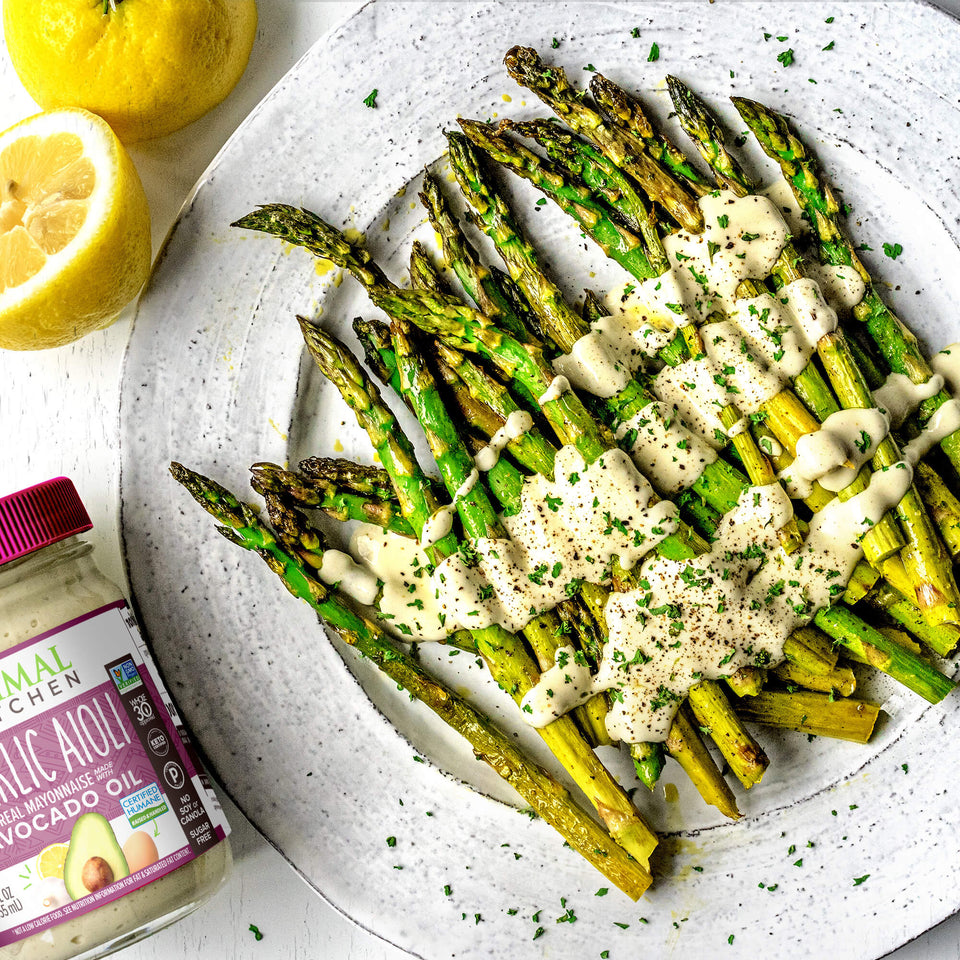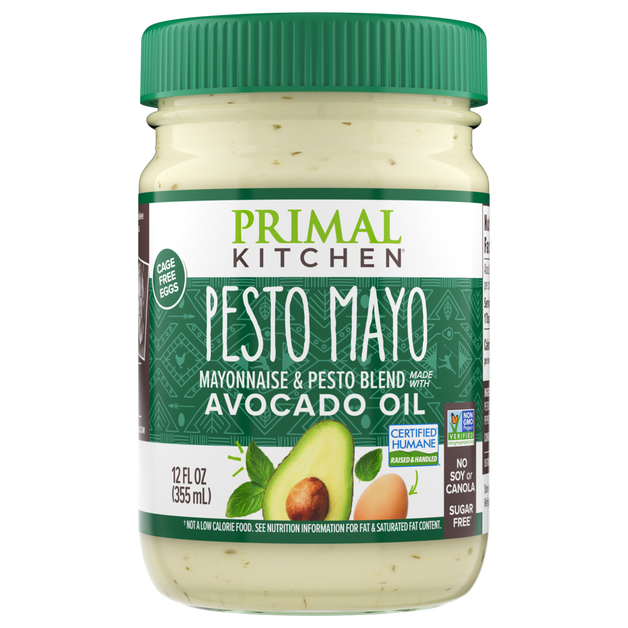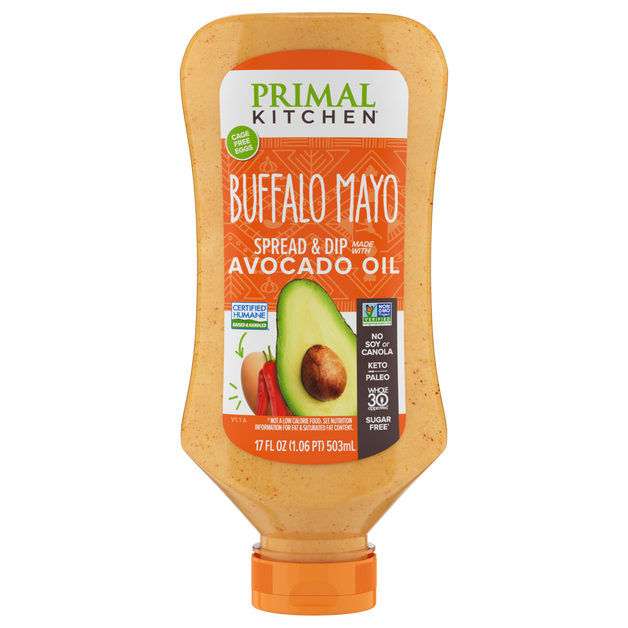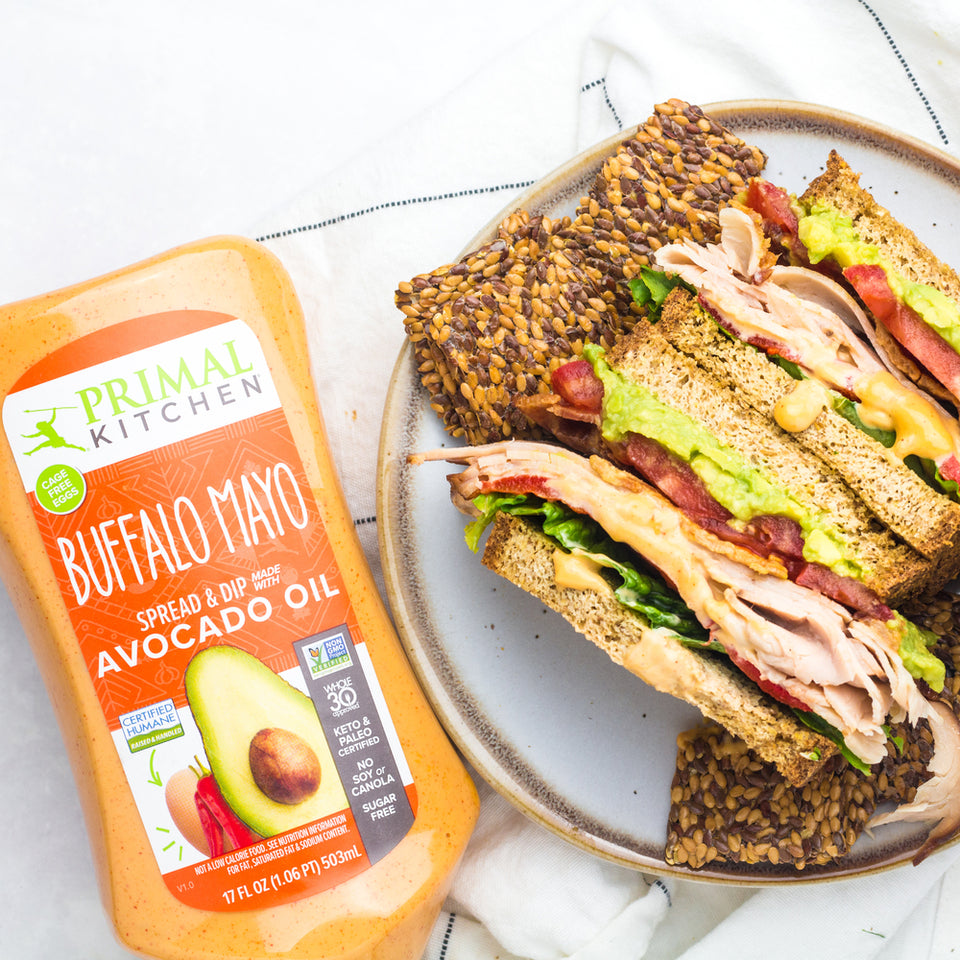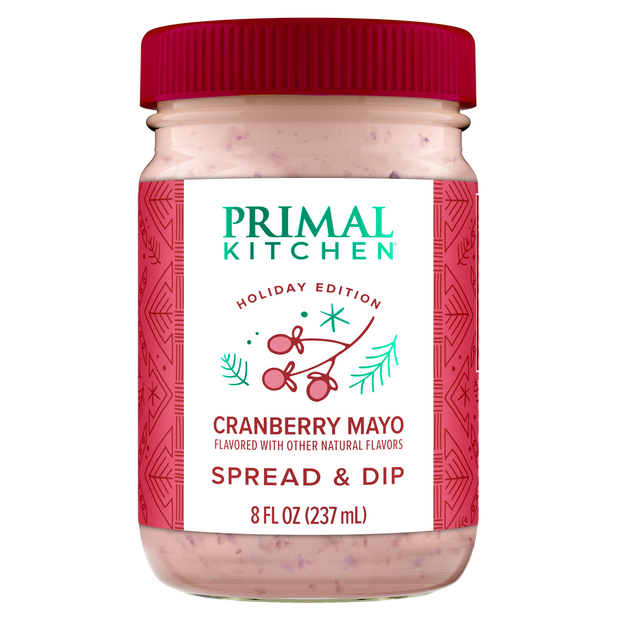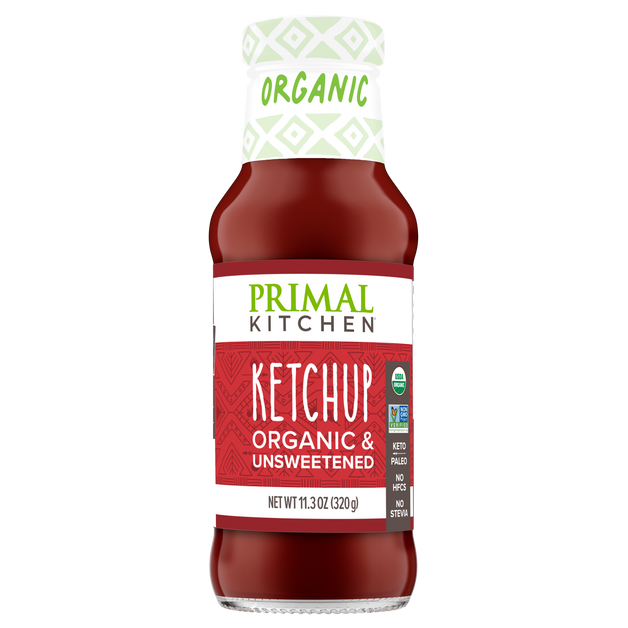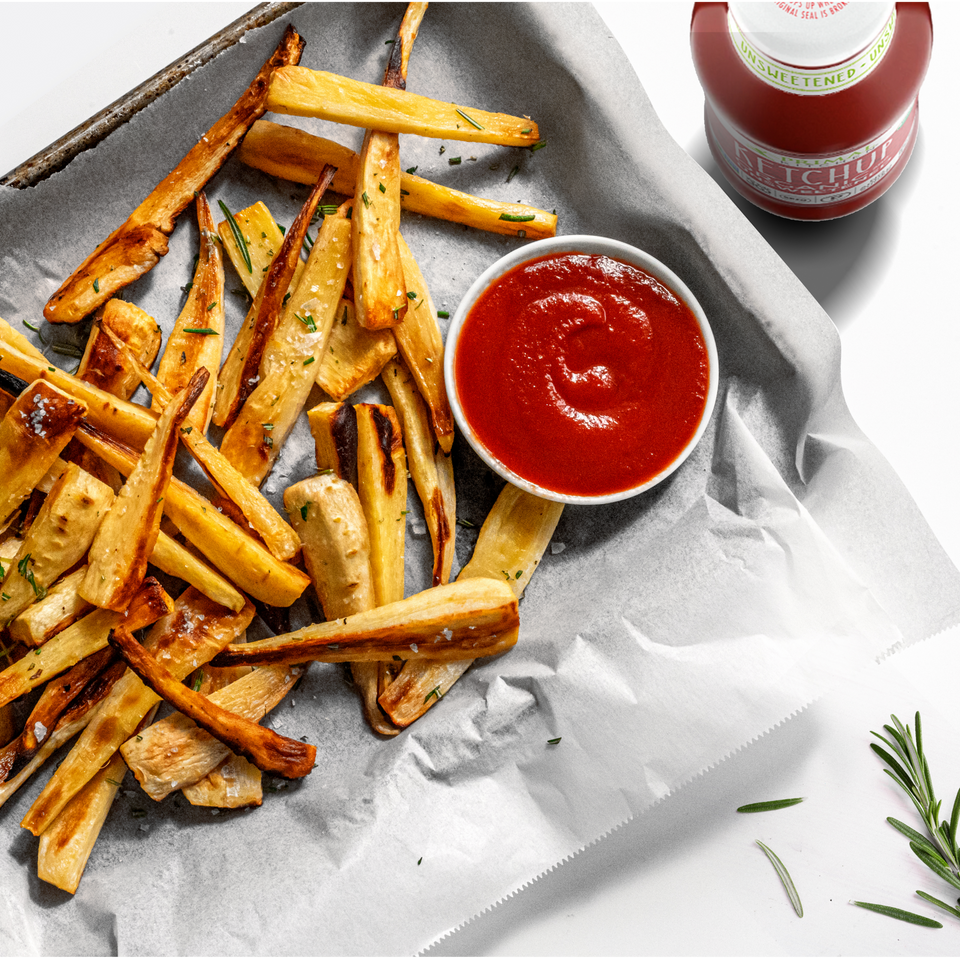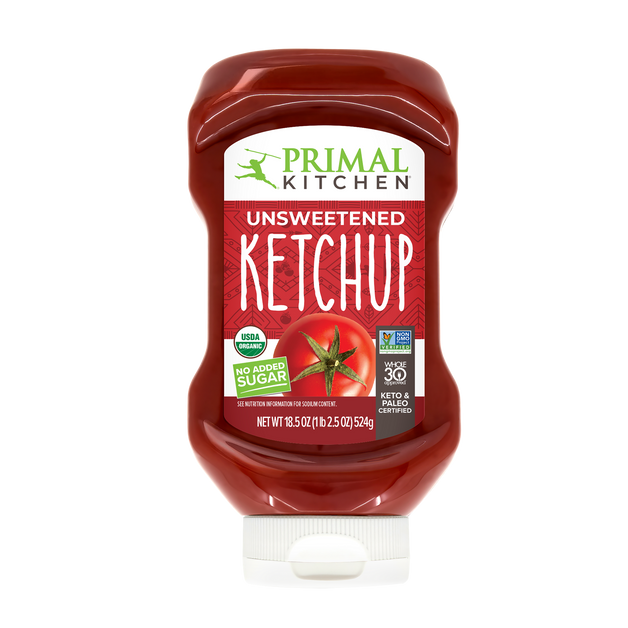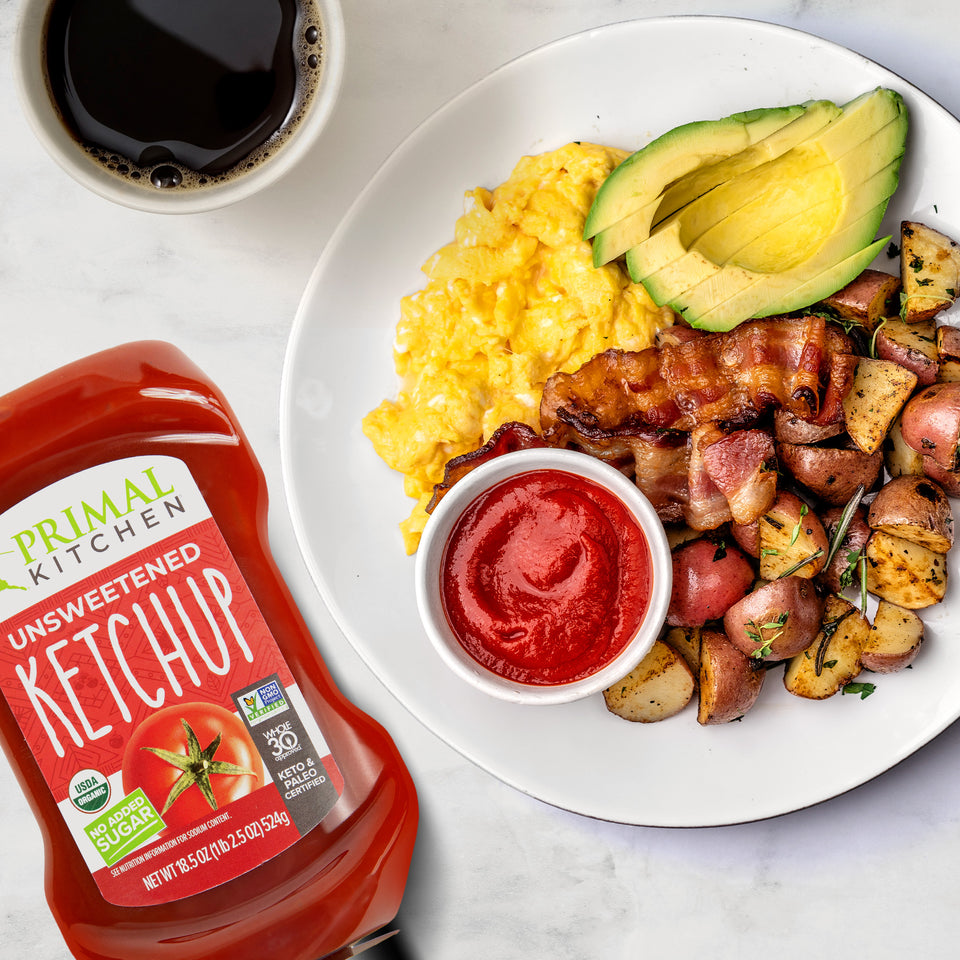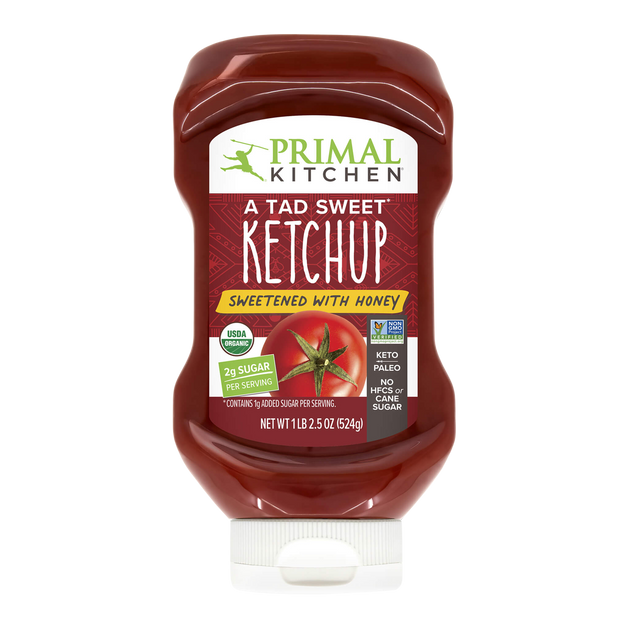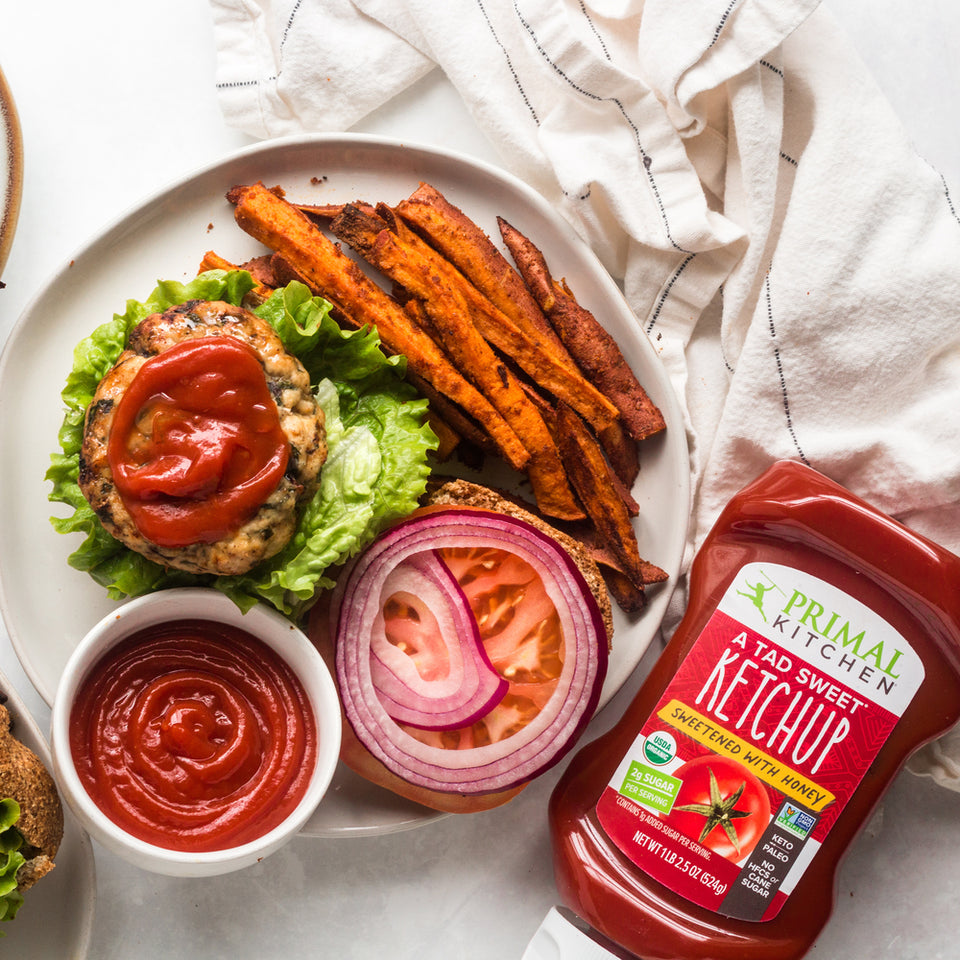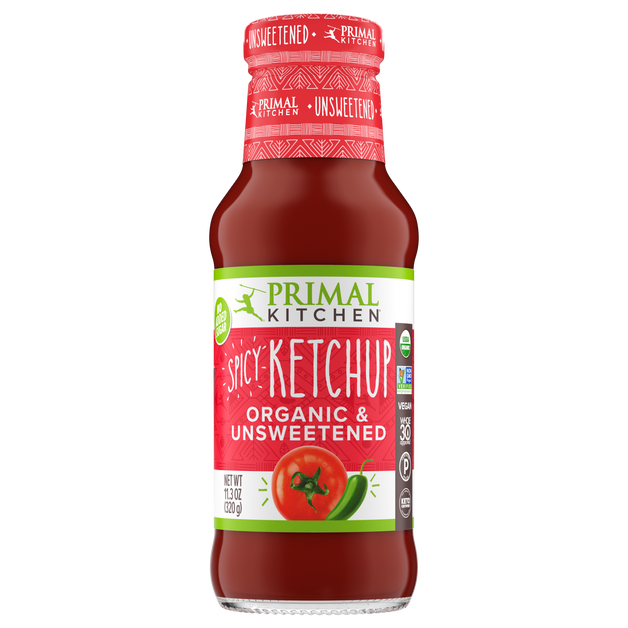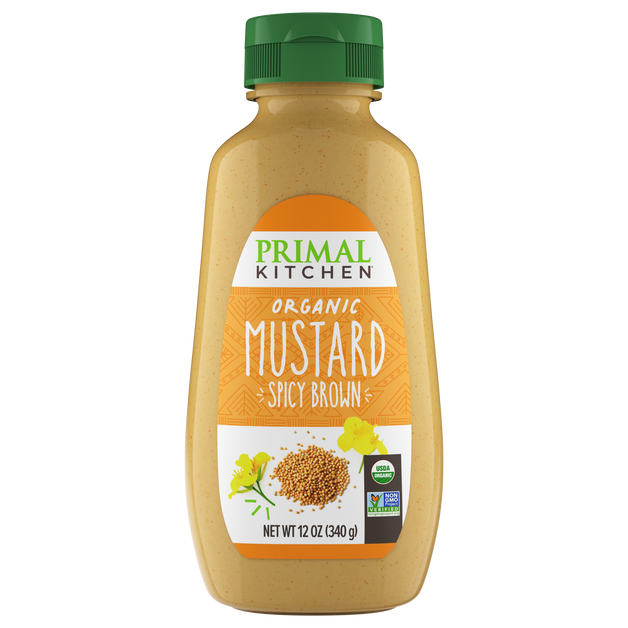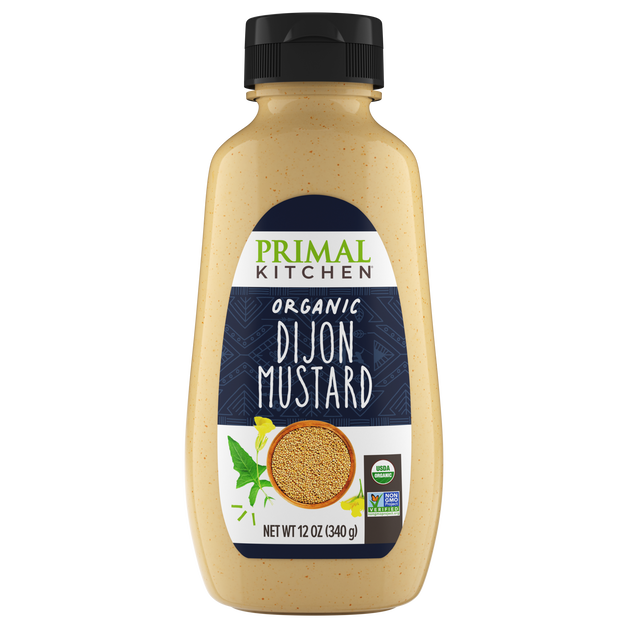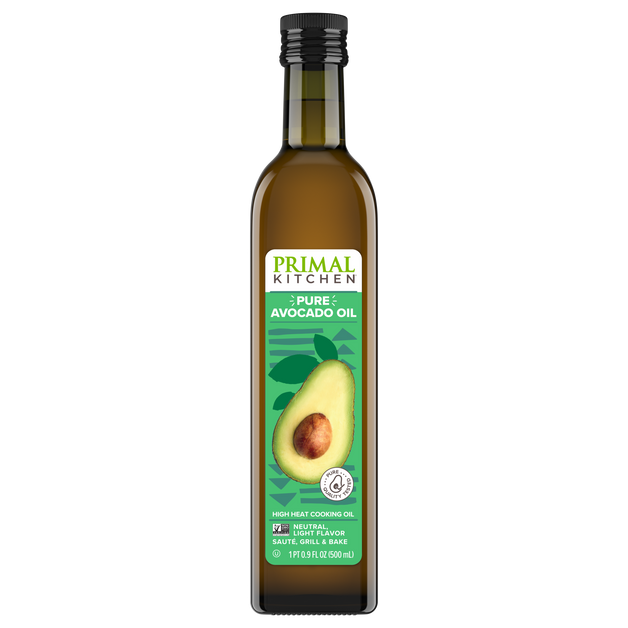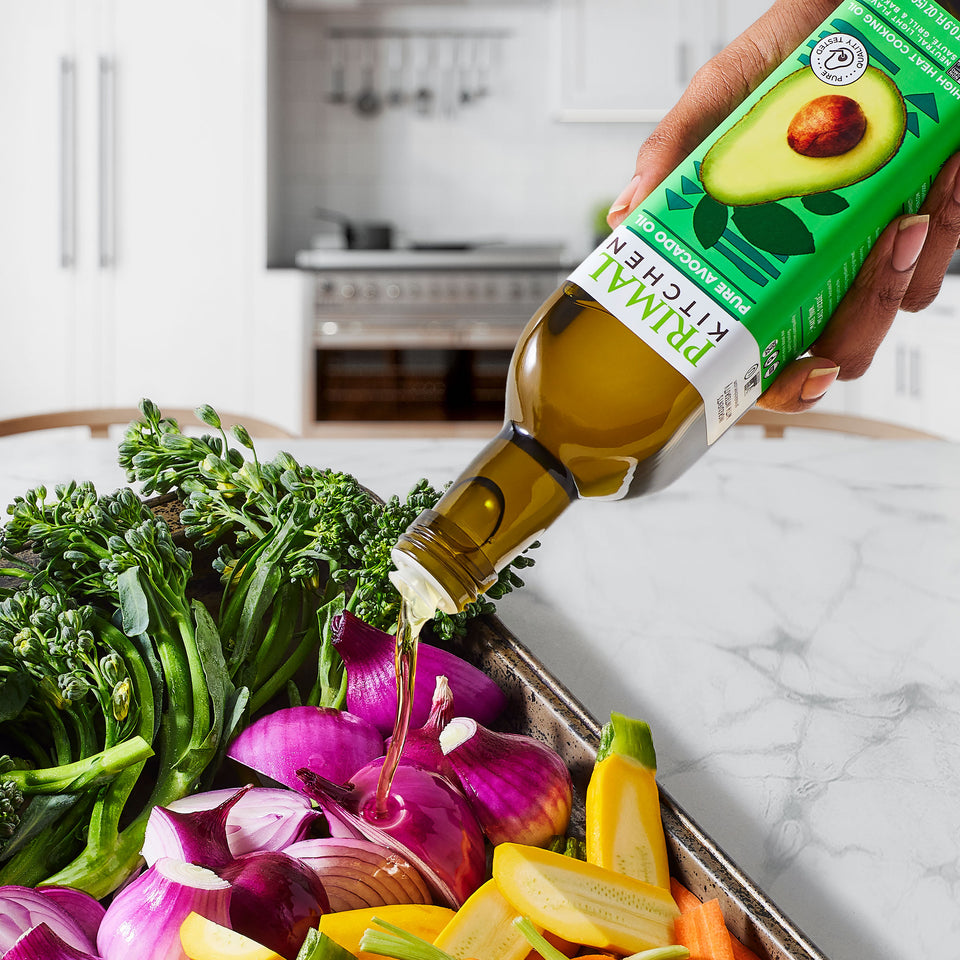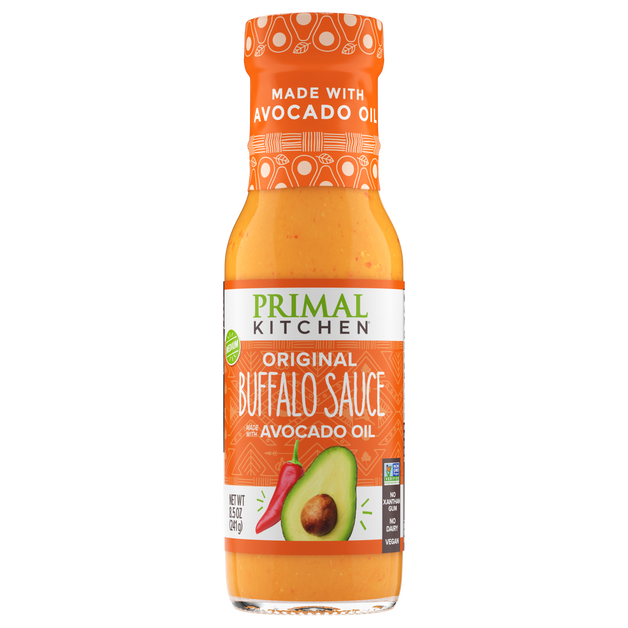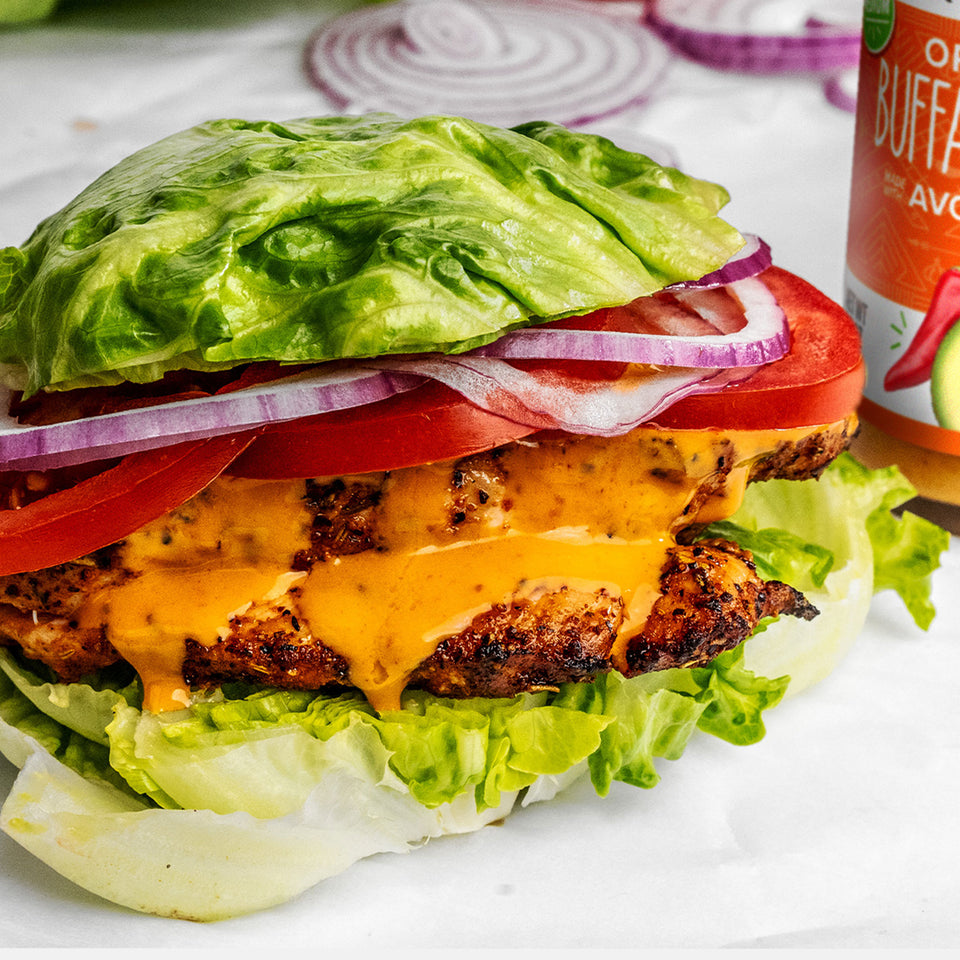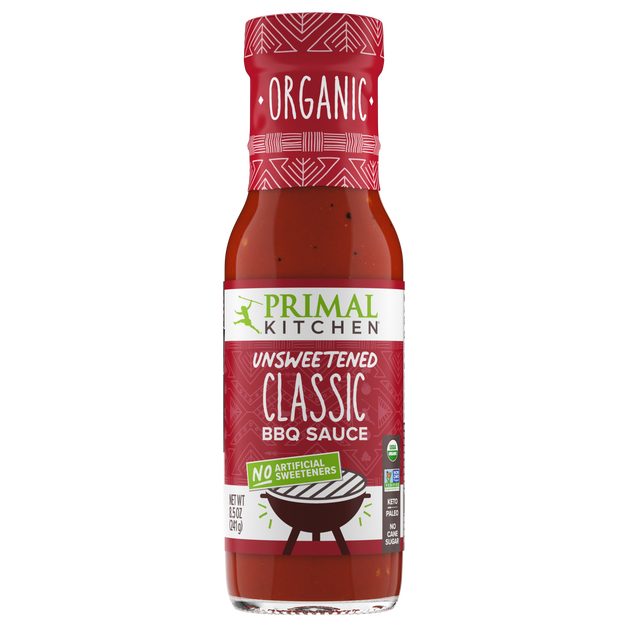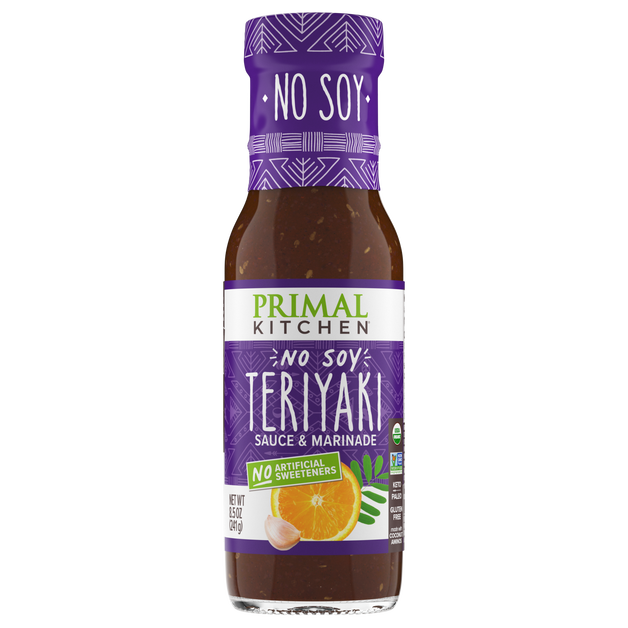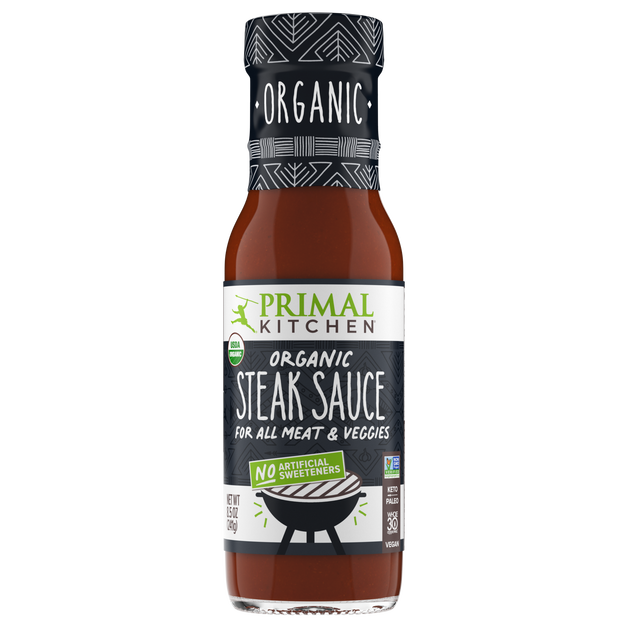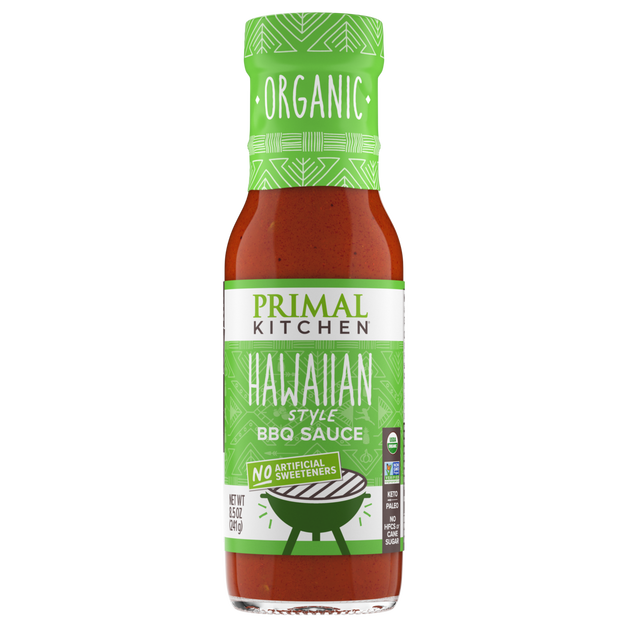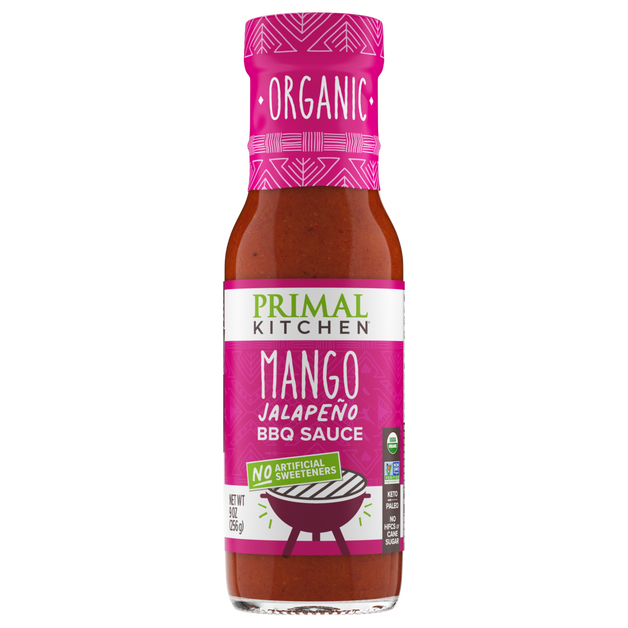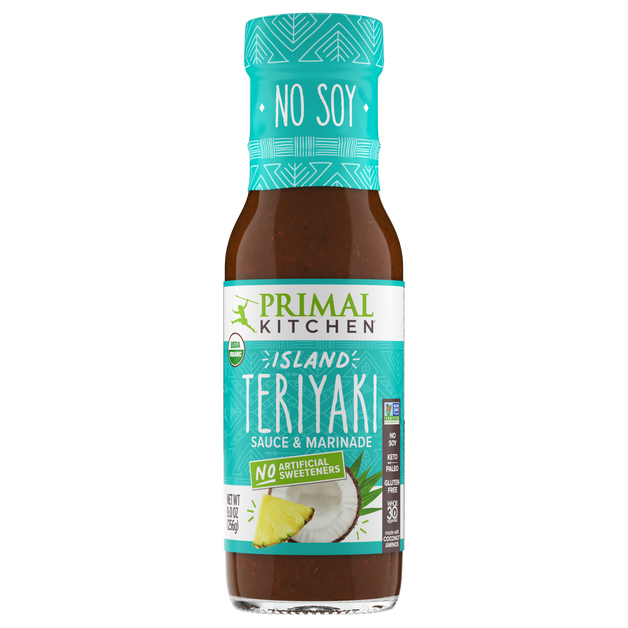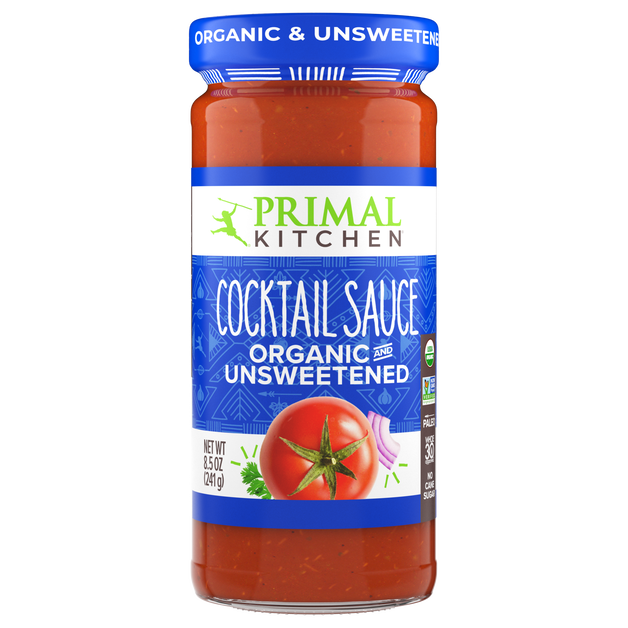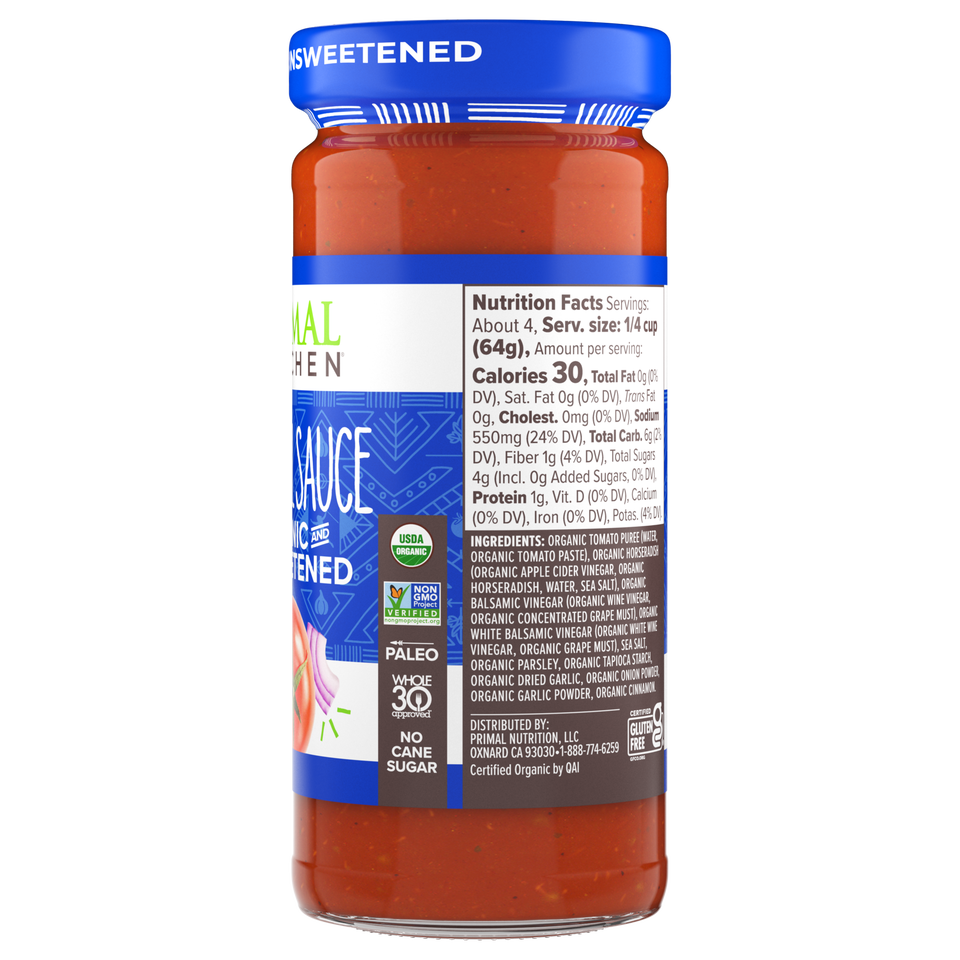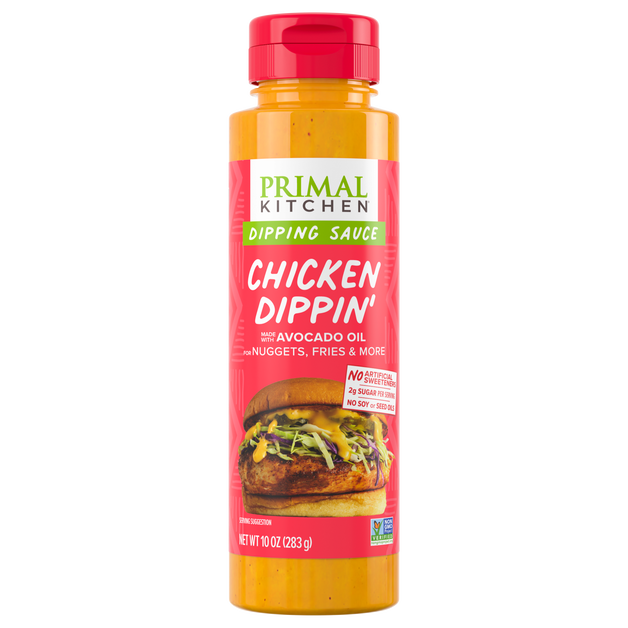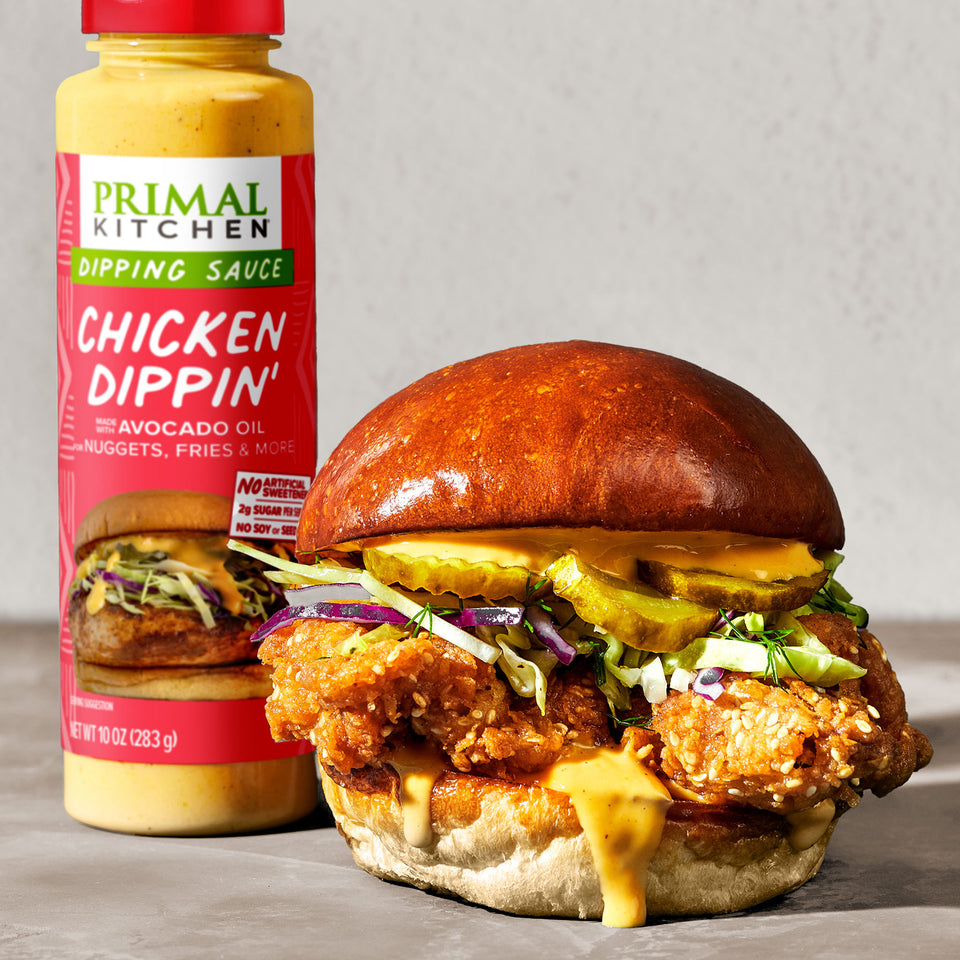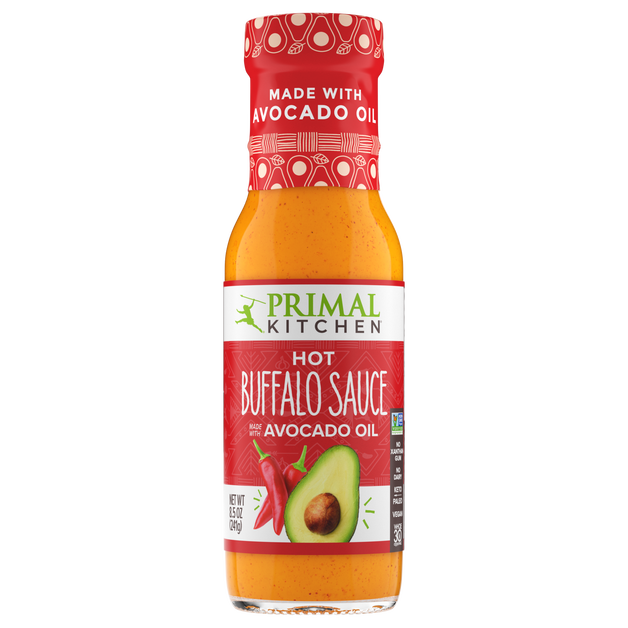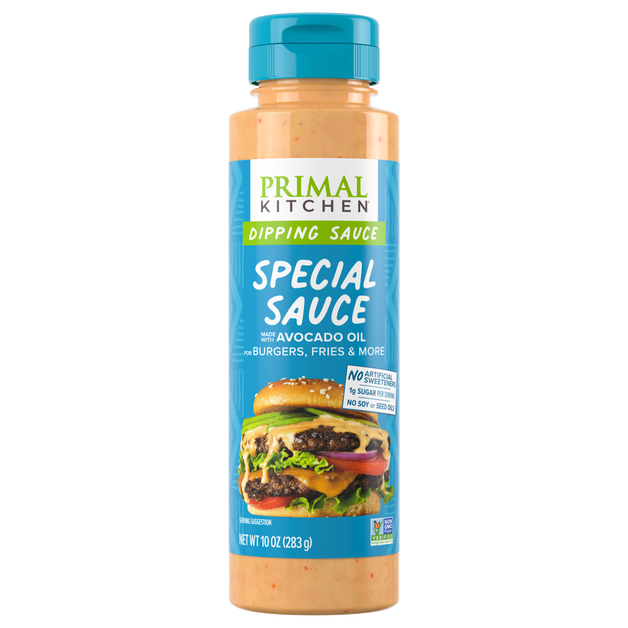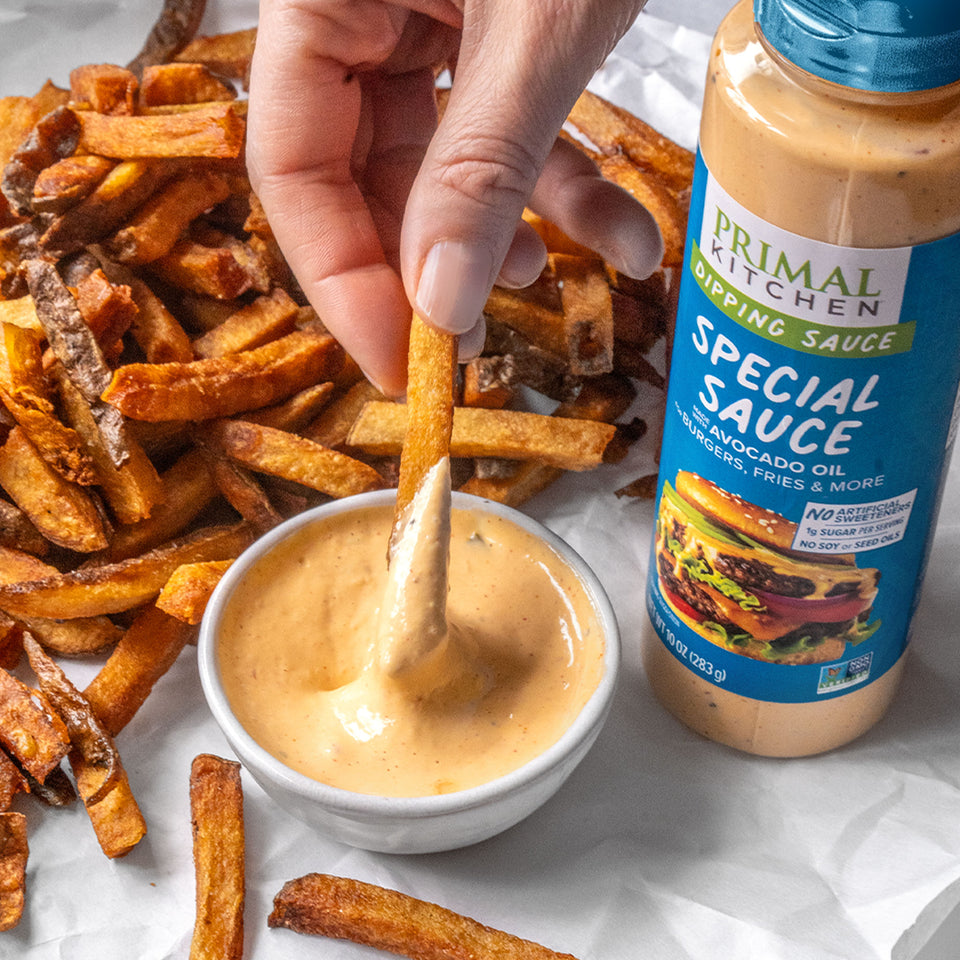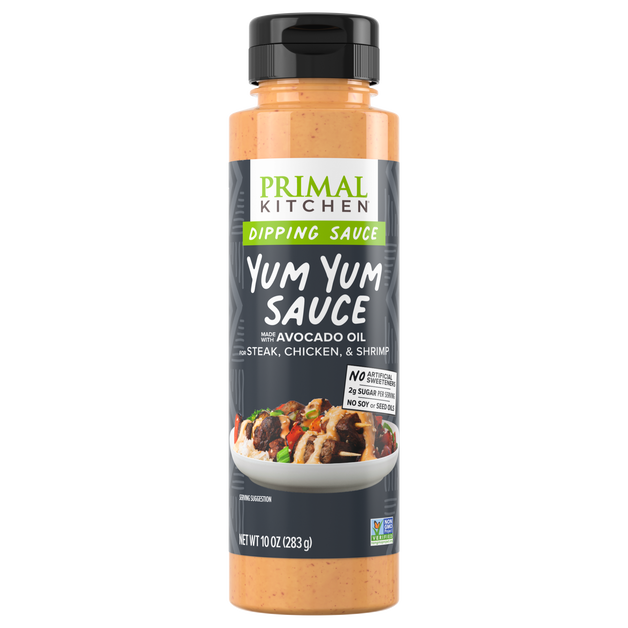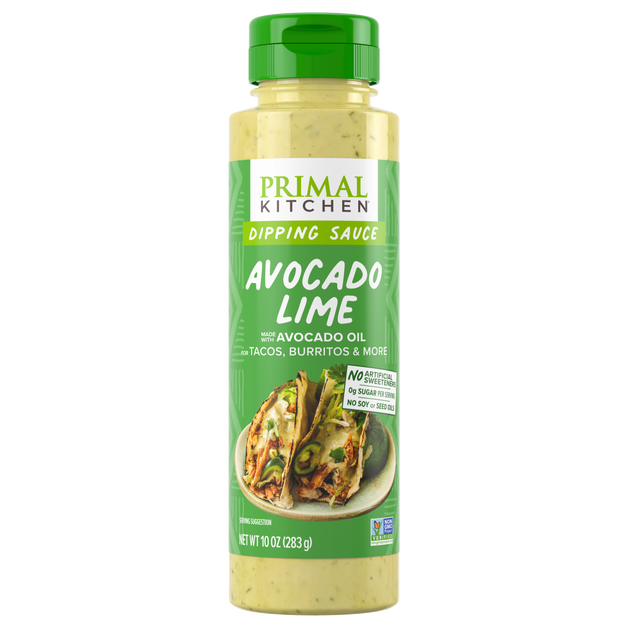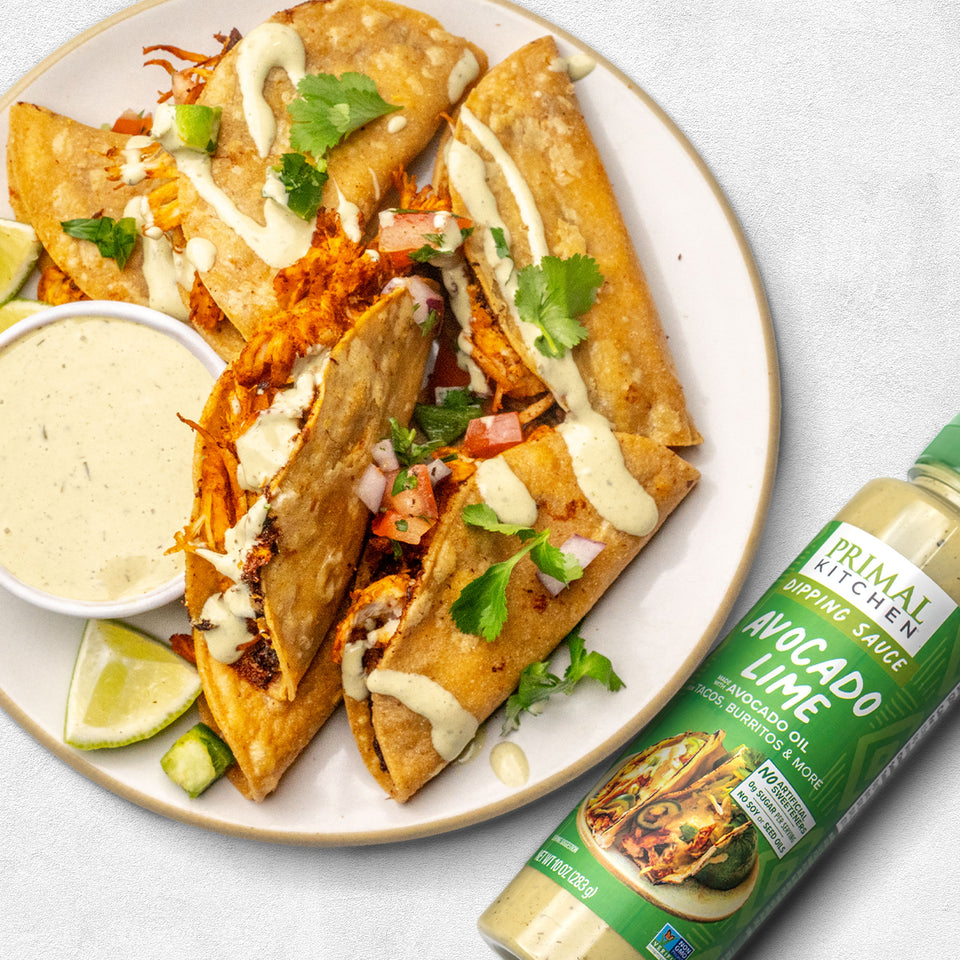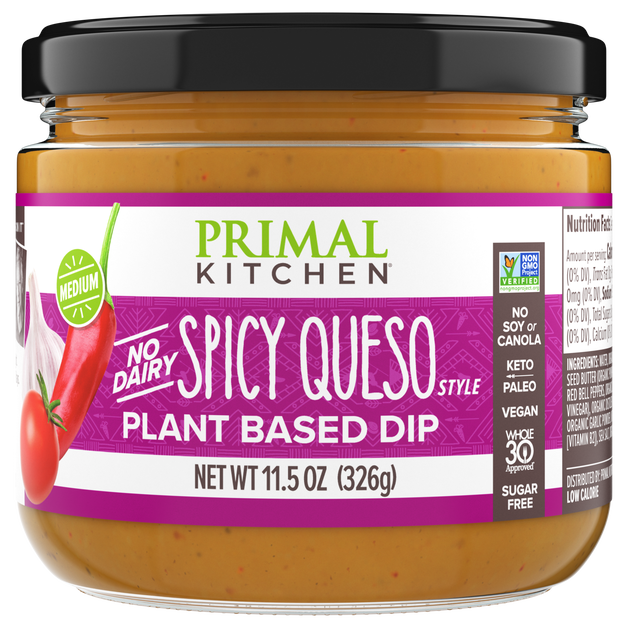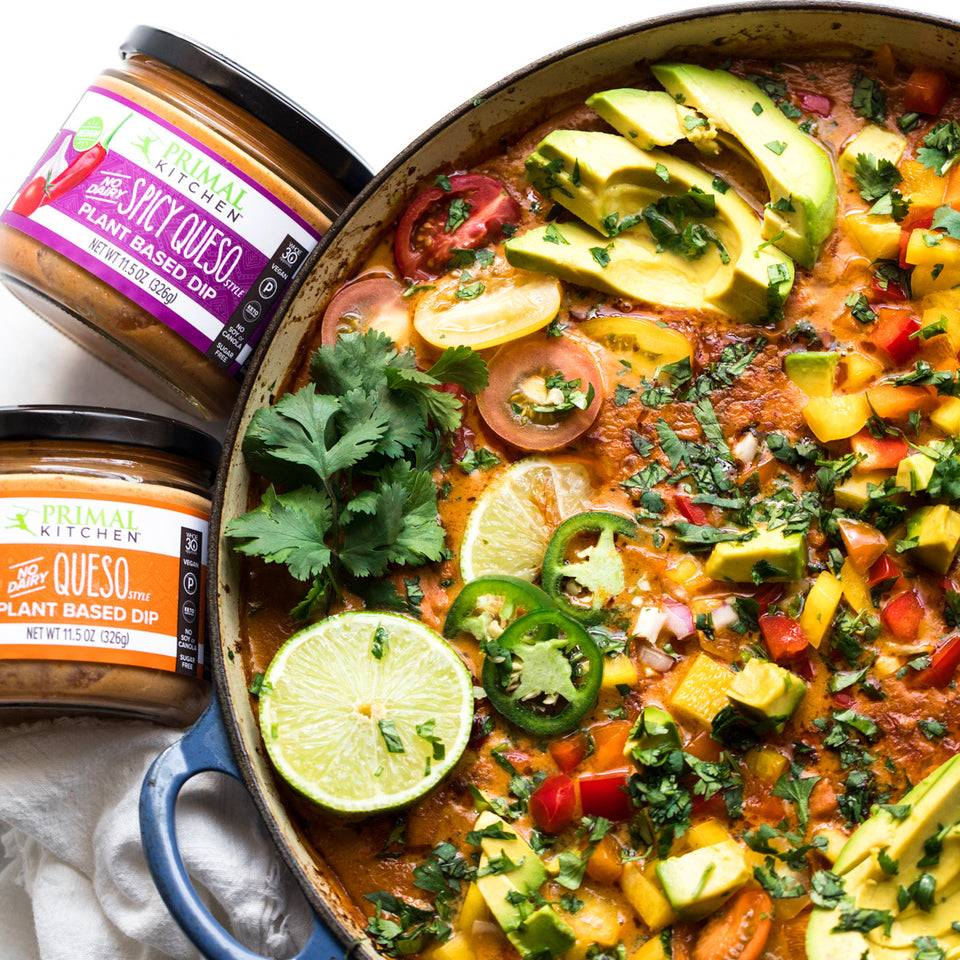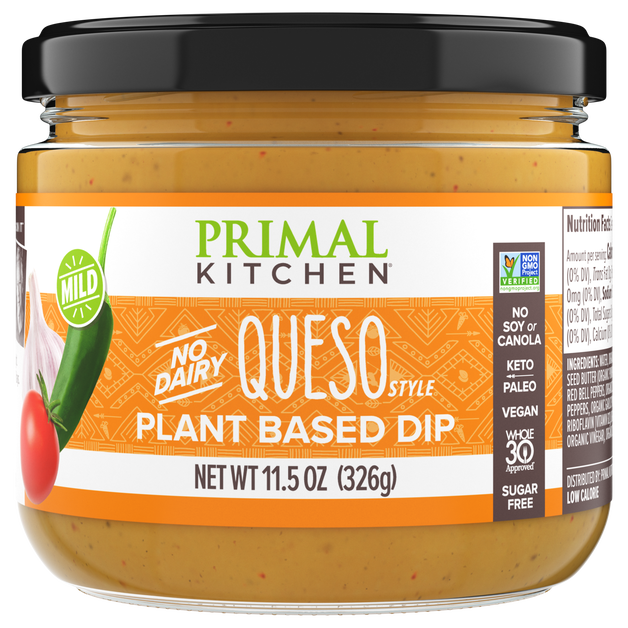As a food lover, you probably have a few types of oil in your pantry—avocado oil, olive oil, maybe coconut or sesame, too. You appreciate the richness and versatility of extra virgin olive oil. You know that avocado oil’s high smoke point and neutral flavor make it ideal for all types of cooking, grilling, and baking.
But are you familiar with MCT oil? Do you know what “MCT” stands for and what makes it different from other types of oils?
If the answer is “not really,” don’t worry. This post will explain everything you need to know about MCT oil, how you can start incorporating it into your cooking, and why you’d want to.
What Is MCT Oil?
MCT oil is derived from coconuts or, less commonly, from palm kernels. In order to understand what makes it unique, we need to start with its molecular structure.
“MCT” stands for medium-chain triglyceride. Triglycerides are fat molecules made up of one glycerol attached to three chains of carbon molecules, or fatty acids. Picture it kind of like a squid. The glycerol is the head, and the carbon chains are the tentacles. “Medium-chain” tells us that the carbon chains—the tentacles—contain between 6 and 12 carbons. Some triglycerides are short-chain (less than 6 carbons), while others are long-chain (more than 12).
This distinction is important because the length of the carbon chains affects how your body absorbs and uses the fat you eat. Long-chain triglycerides need to go through multiple steps of enzymatic breakdown, repackaging, and transport before they can be utilized for energy or stored as body fat to be used later. MCTs are more easily absorbed and taken straight to the liver to be converted to energy—and that makes all the difference, for reasons we’ll explain shortly.
MCT Oil Versus Coconut Oil
Although MCT oil usually comes from coconuts, it’s not the same as the coconut oil that’s already in your kitchen.
Regular coconut oil is solid at cool temperatures and retains some of the sweet odor and distinctive flavor of the coconut fruit. MCT oil is liquid at room temperature and has a neutral flavor that works well for a variety of cooking applications. MCT oil is sometimes called fractionated coconut oil because it is produced by separating or "fractionating" it from whole coconut oil.
These might seem like small differences, but in fact, they matter a lot in terms of what happens when you eat them.
Benefits of MCT Oil
MCT oil, like all types of fat, provides energy to your body—but differently than other oils.
Every second of every day, your cells are using energy. Some of that energy comes from the carbohydrates (glucose) and fat you eat. Your liver can also produce energy molecules called ketones, or ketone bodies, from fats. It does so when glucose is scarce because you are eating a very low-carb ketogenic diet (hence the name) or when you practice intermittent fasting. MCT oil, because it goes directly to the liver, also gets converted into ketones.
The brain, heart, and other tissues can use ketones for energy in place of, or alongside, glucose and fat. This is important for individuals with medical conditions like glycogen storage disease (GSD) that impair their ability to use glucose. Certain medical conditions like epilepsy, Alzheimer’s disease, and some types of cancers also seem to benefit from having elevated ketones.
MCT is often sold as a supplement for people interested in boosting ketone production, like keto dieters who want to achieve a state of “nutritional ketosis” and endurance athletes who hope that MCT oil will provide extra energy for hardworking muscles. Note that MCT oil and coconut oil are both high in saturated fat. When deciding what oils to cook or supplement with, it’s always a good idea to weigh the pros and cons and discuss options with a healthcare professional if you are unsure whether a particular one is right for you.
“Fractionated coconut oil” (just another name for MCT oil) is also a common beauty ingredient that you apply topically. You’ll often find fractionated coconut oil in recipes for homemade moisturizers and used as a carrier oil for essential oils.

Can You Cook with MCT Oil?
Yes! MCT oil boasts a neutral flavor that lets the flavors of your dishes shine through. It doesn’t retain any of the fruity flavor or odor that some people find disagreeable in coconut oil.
And because MCT oil is a liquid even at cooler room temperatures, you can drizzle or spray MCT oil to achieve just the right level of added oil for your recipes. It also makes a great base for salad dressings or marinades on its own or in harmony with your other favorite culinary oils. In fact, MCT oil really shines when blended with another oil like avocado or olive oil to enhance those oils’ silky textures.
The Final Scoop on MCT Oil
MCT oil is a liquid oil usually derived from coconuts. Unlike regular coconut oil, it has a neutral flavor and odor, so it can be used in many culinary applications, from air frying to salad dressings to blending into your coffee.
MCT oil also has a special ability to boost ketone levels because of how it is metabolized. Thus, some people consume MCT oil as a supplement, often alongside a keto diet.
Look for MCT oil with the cooking oils or in the dietary supplement section of your local supermarket, and check it out for yourself!



